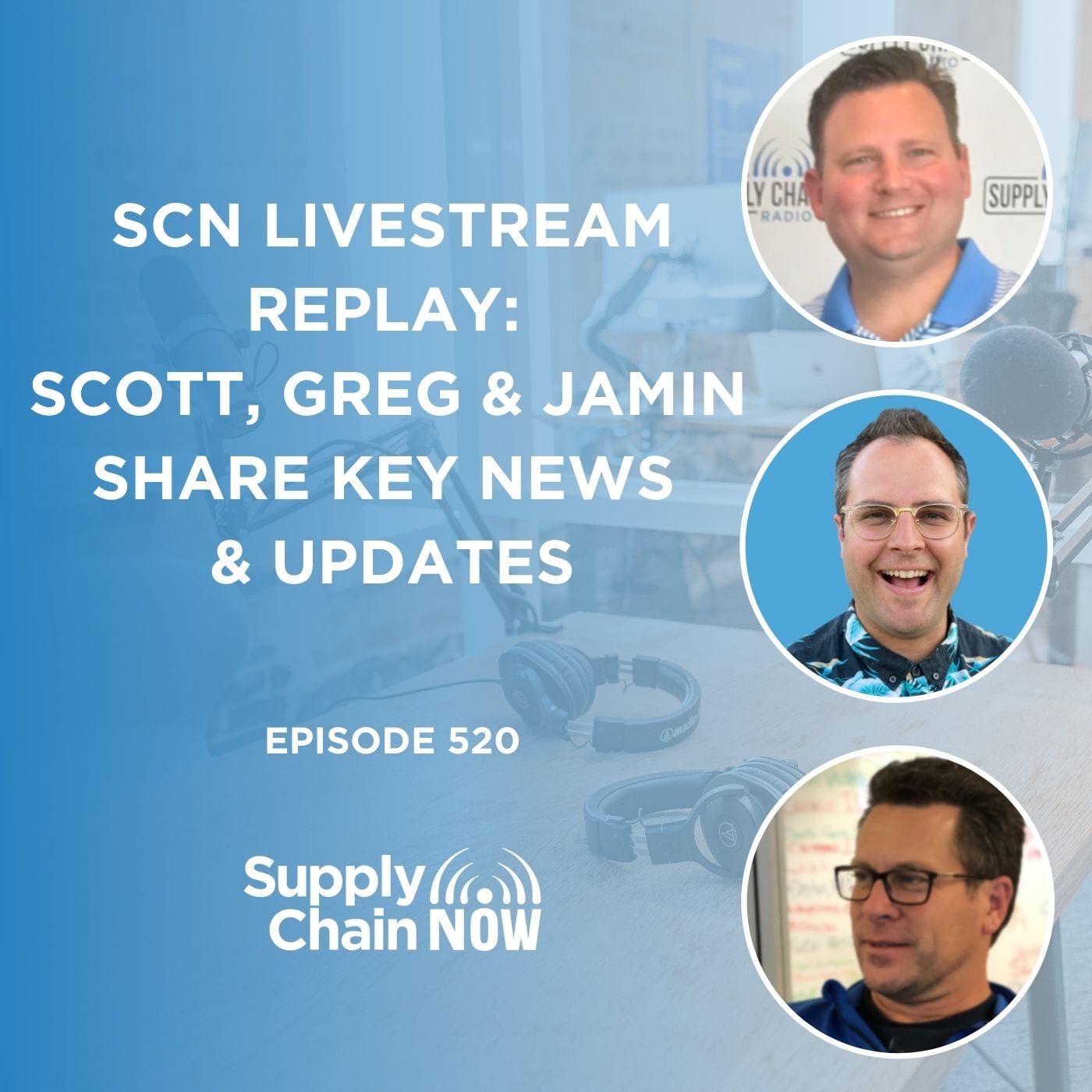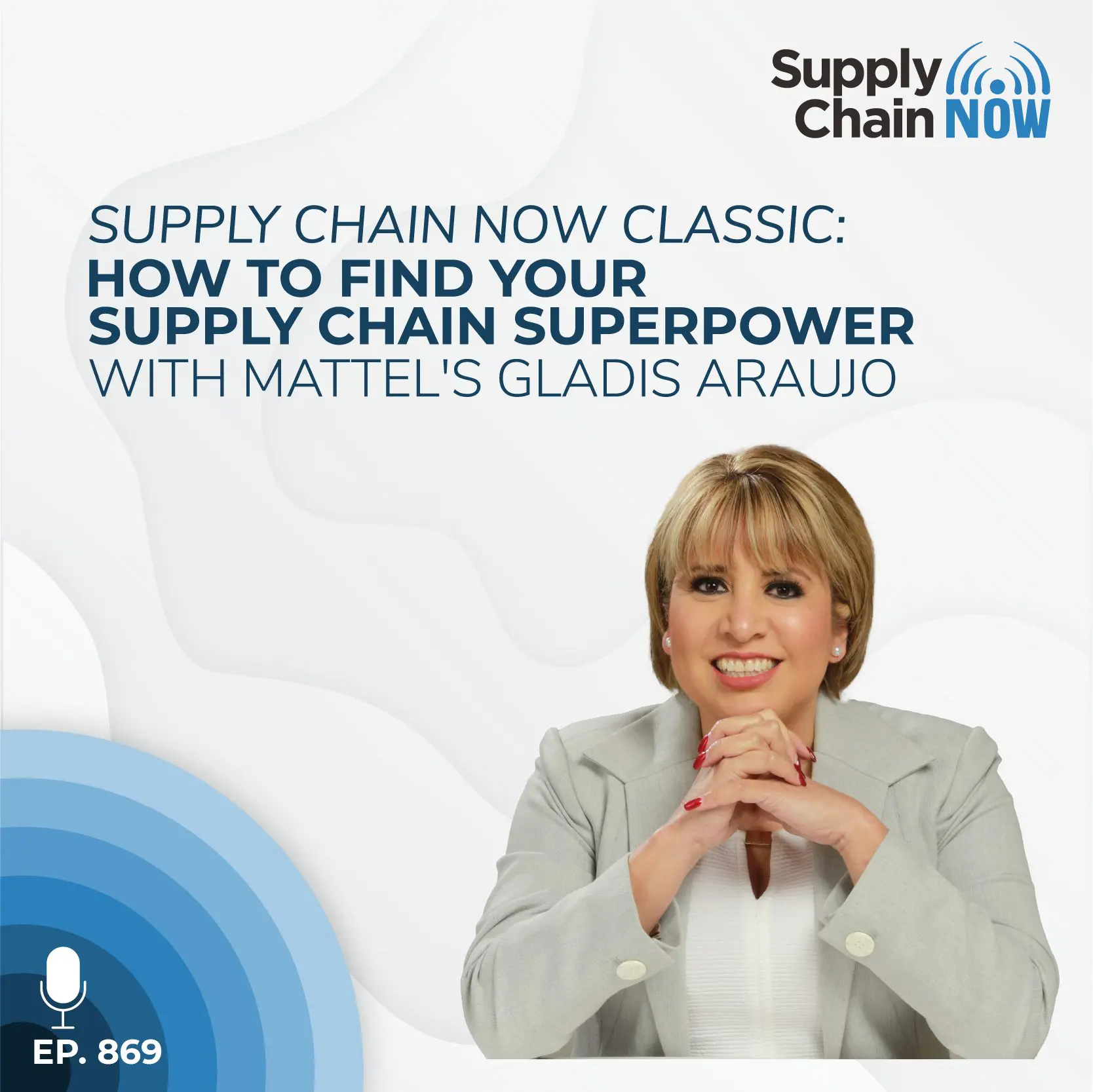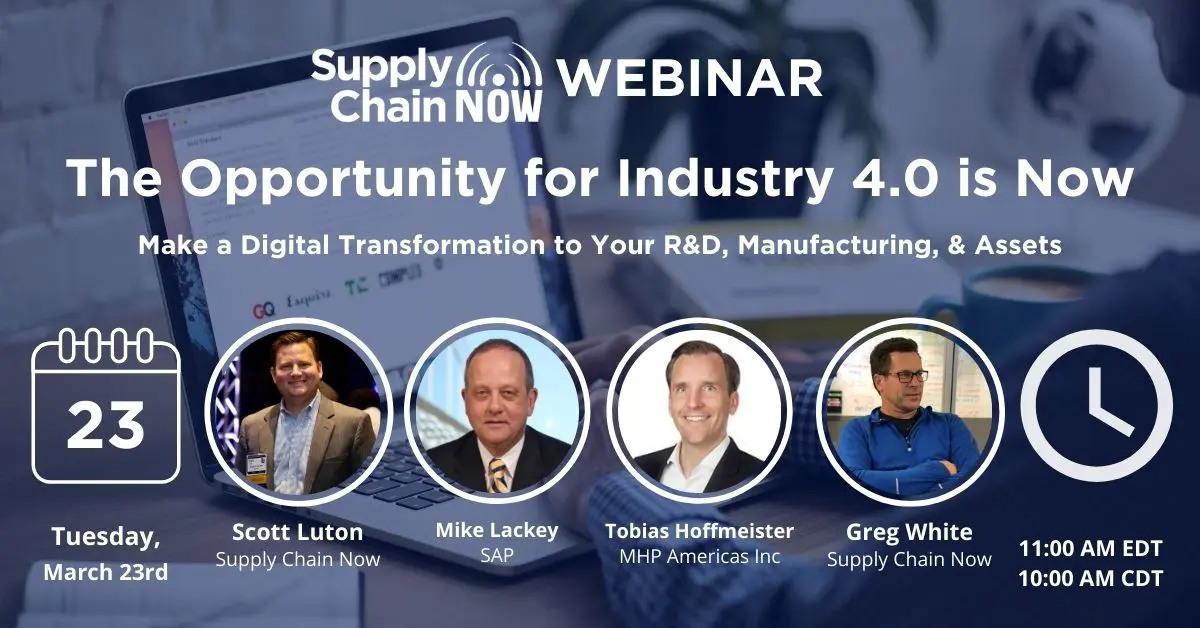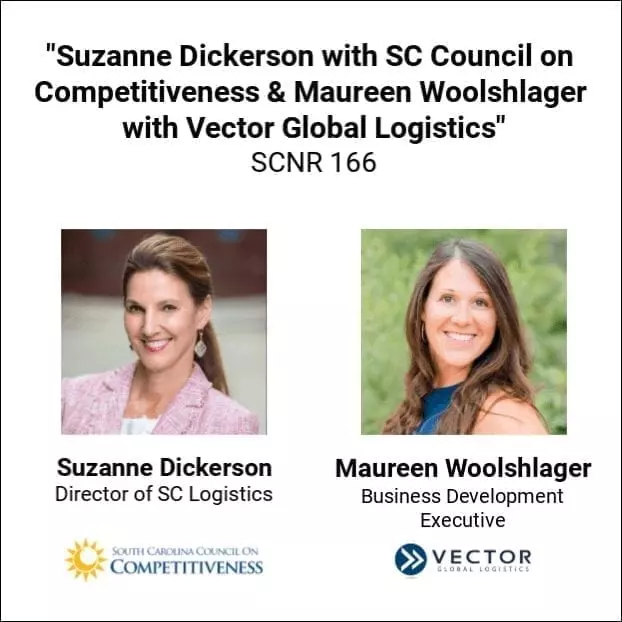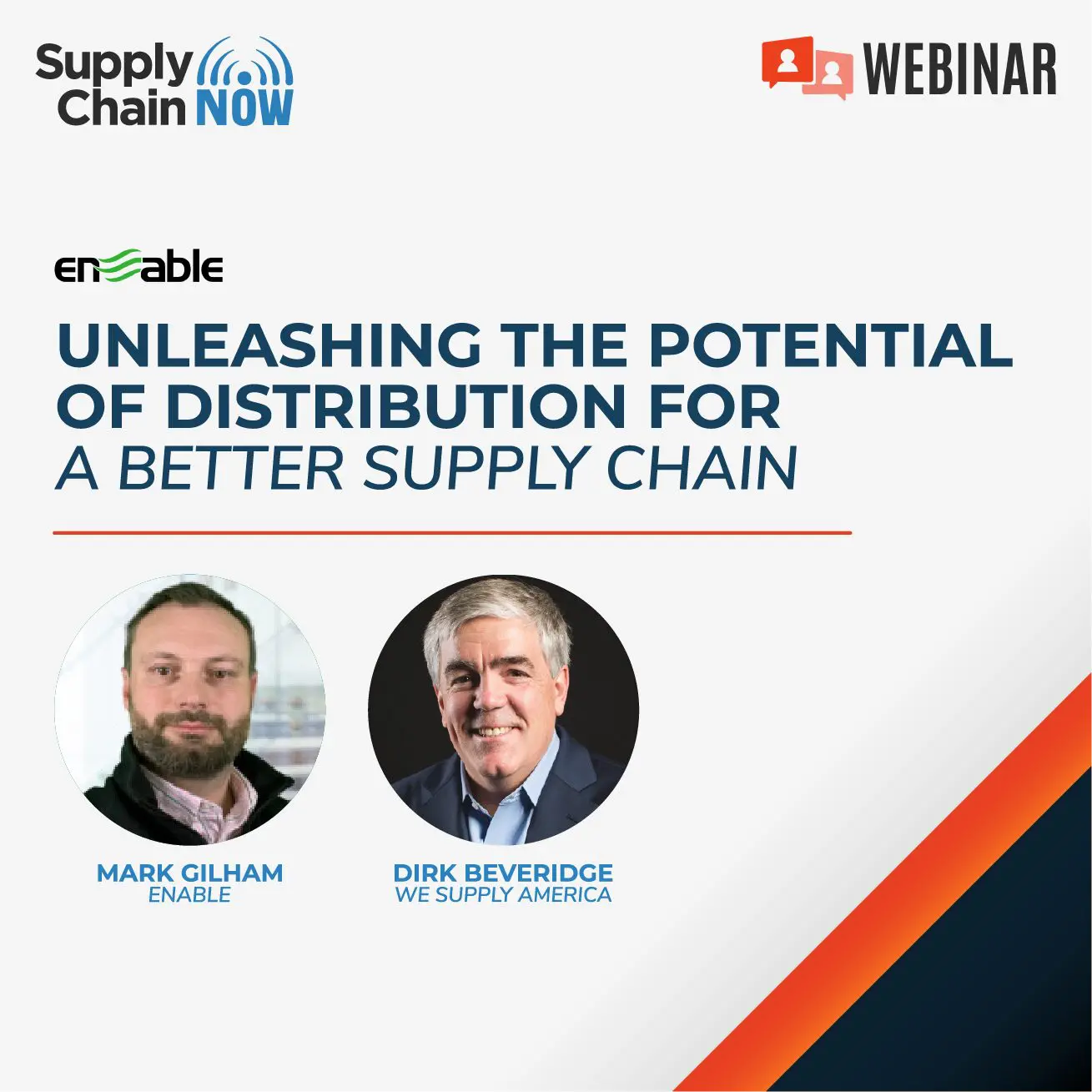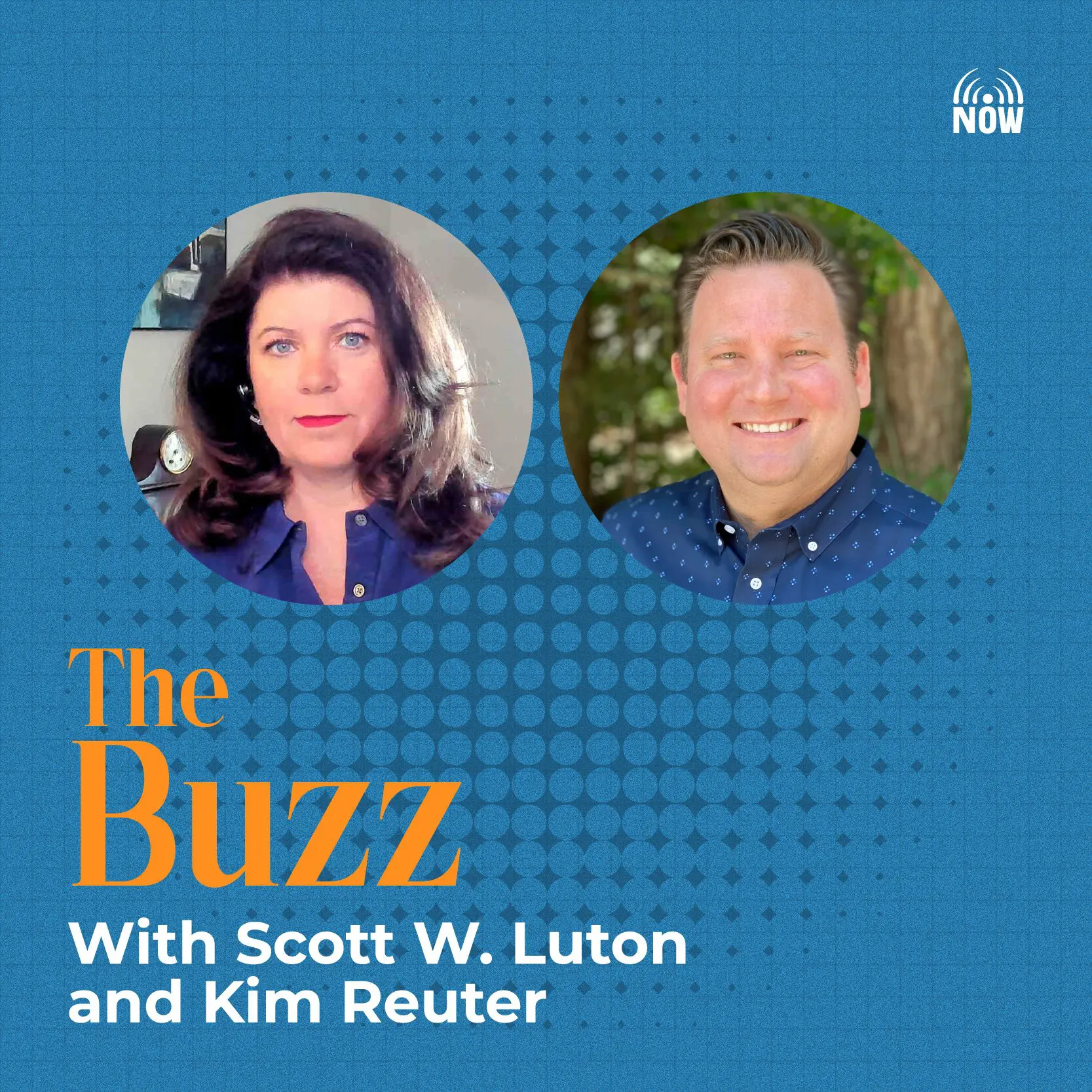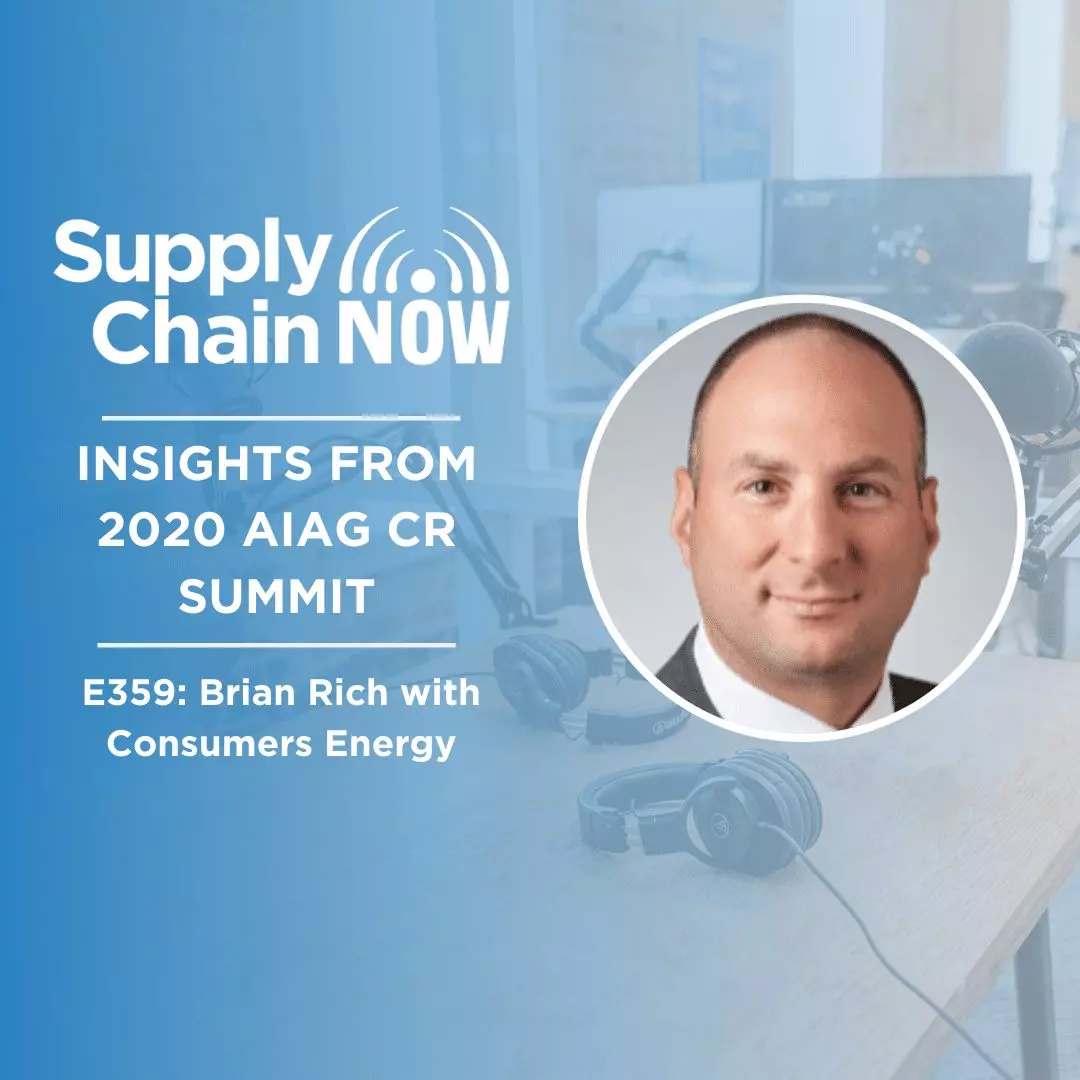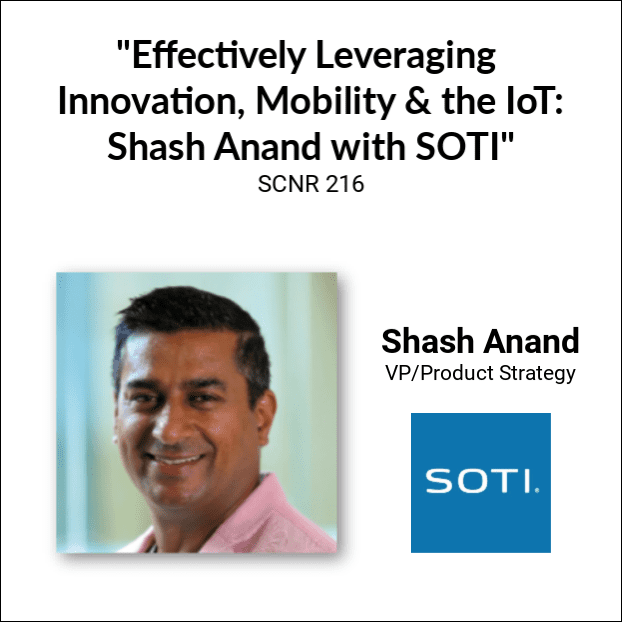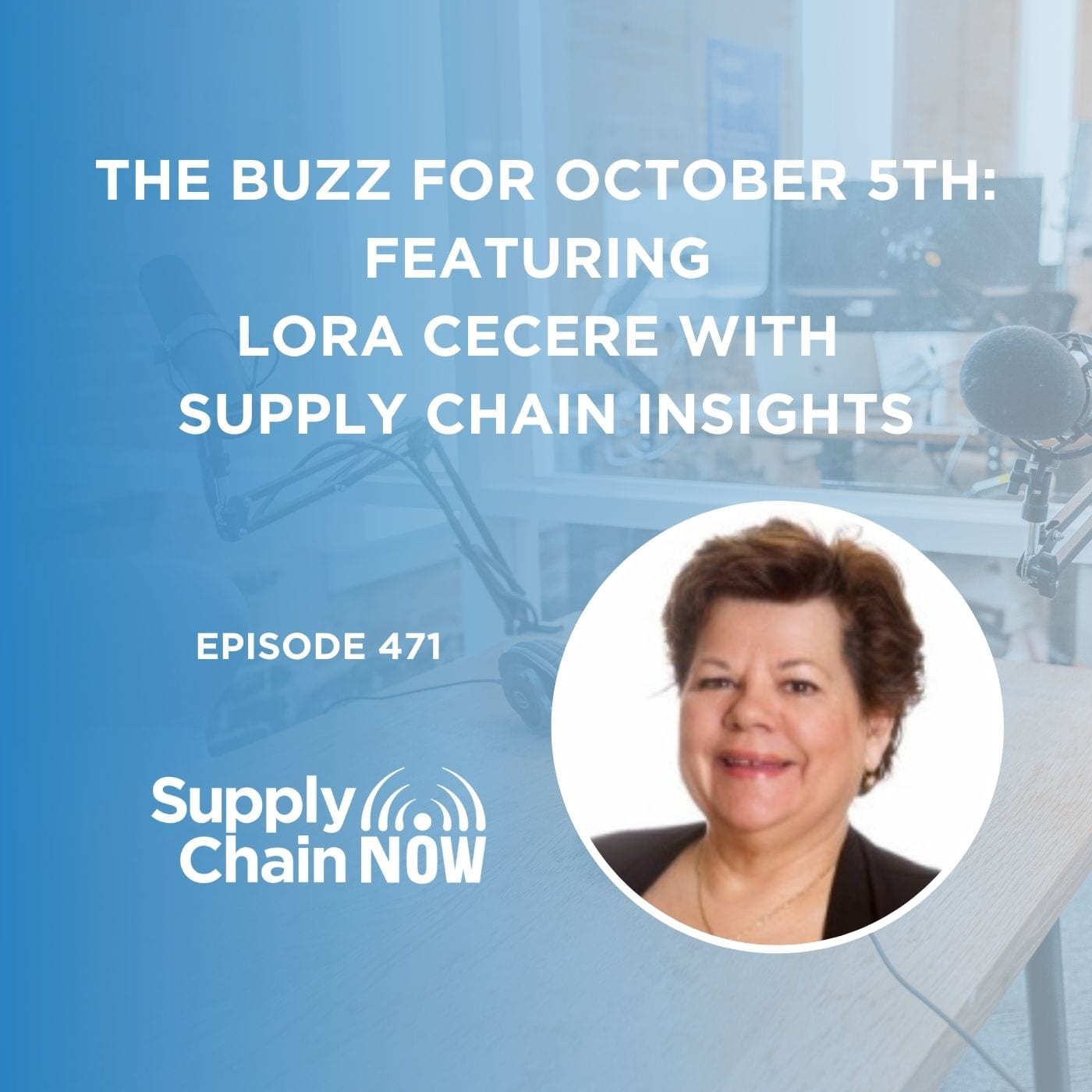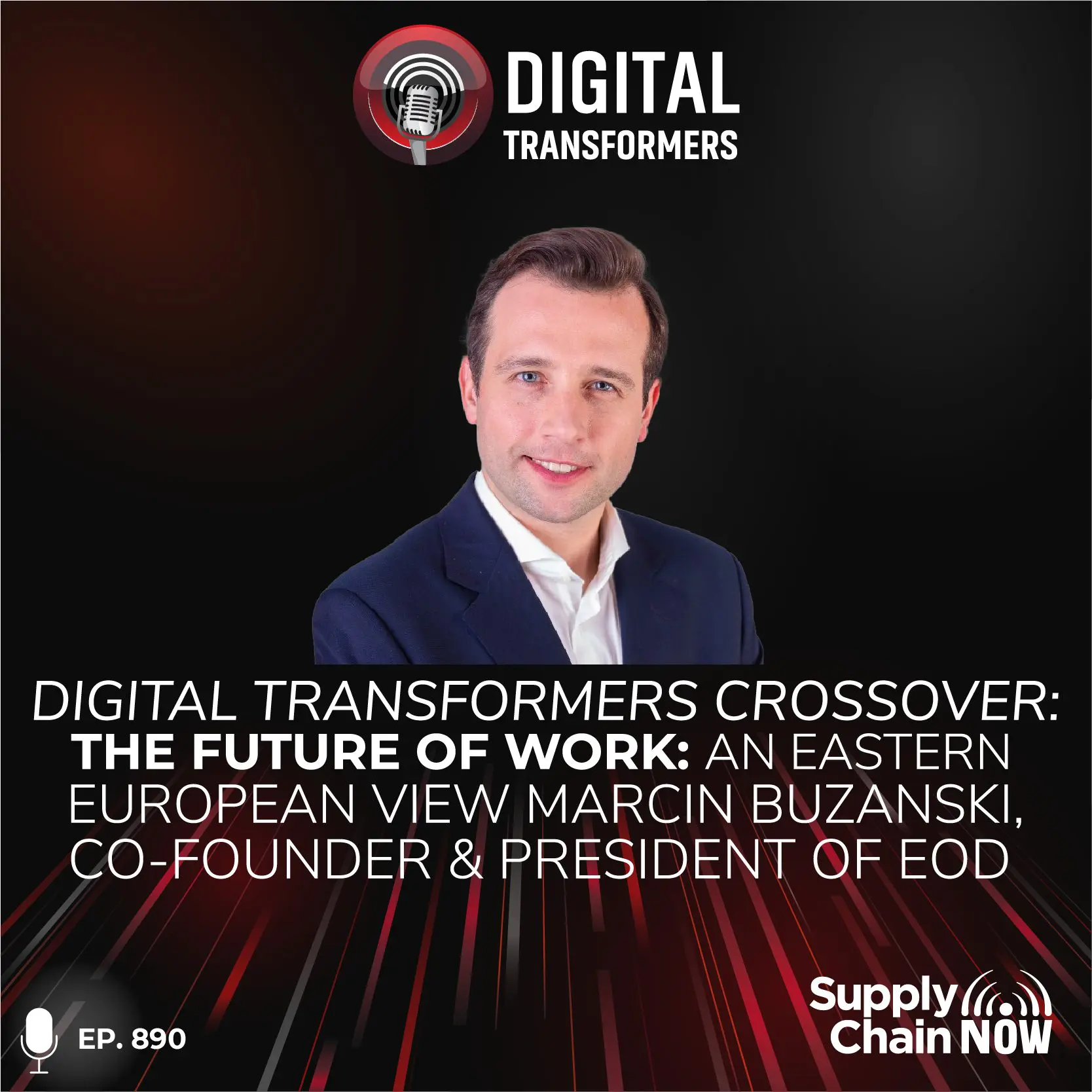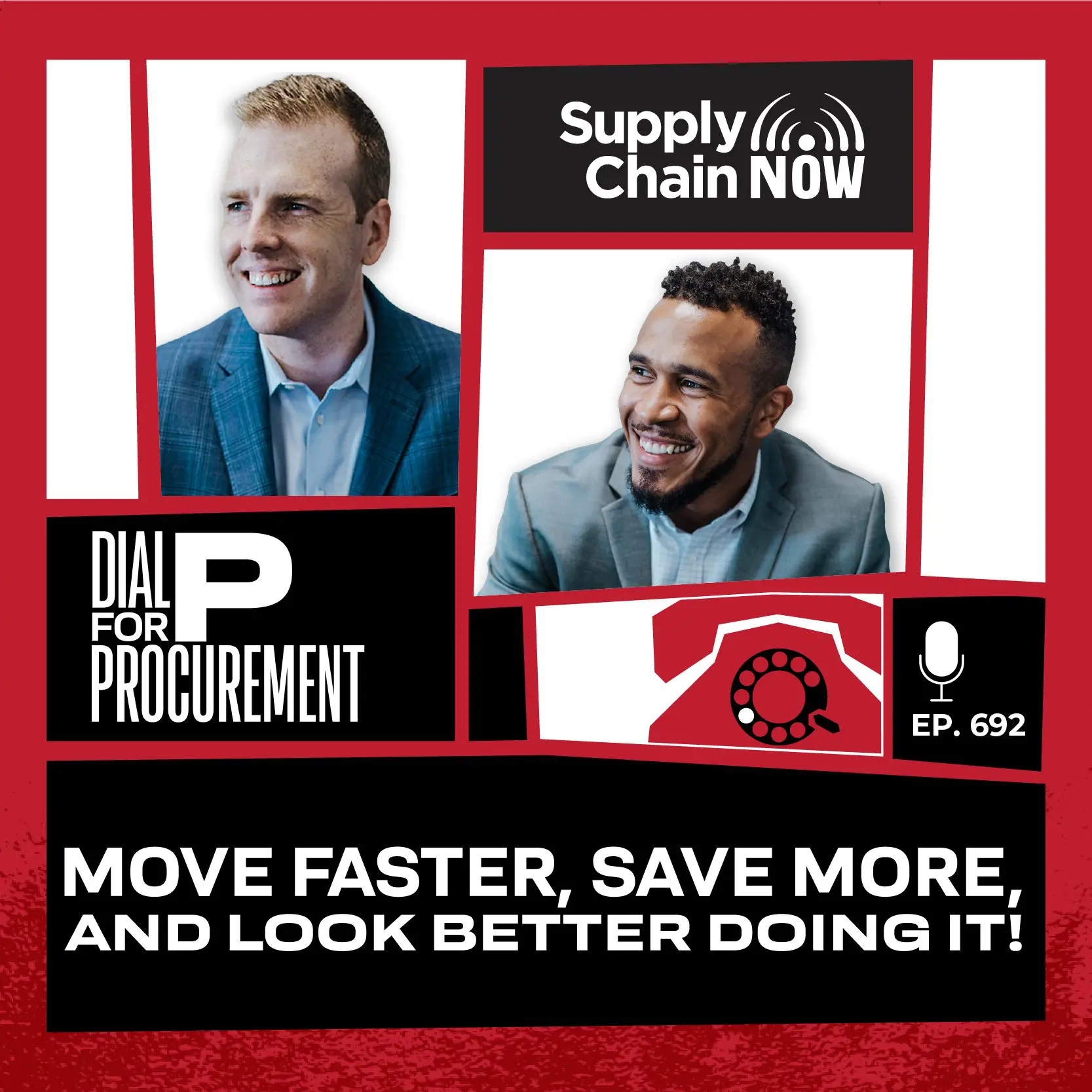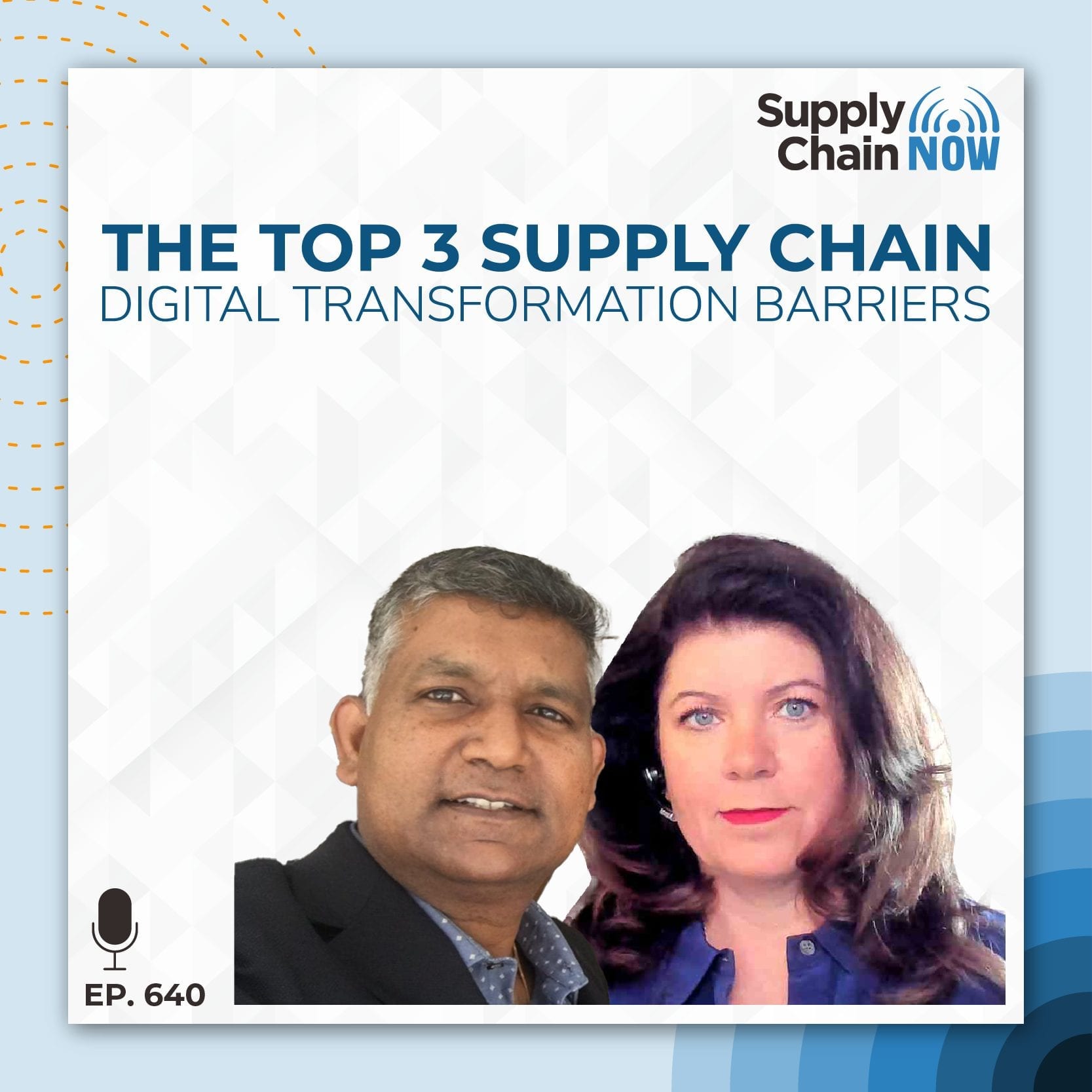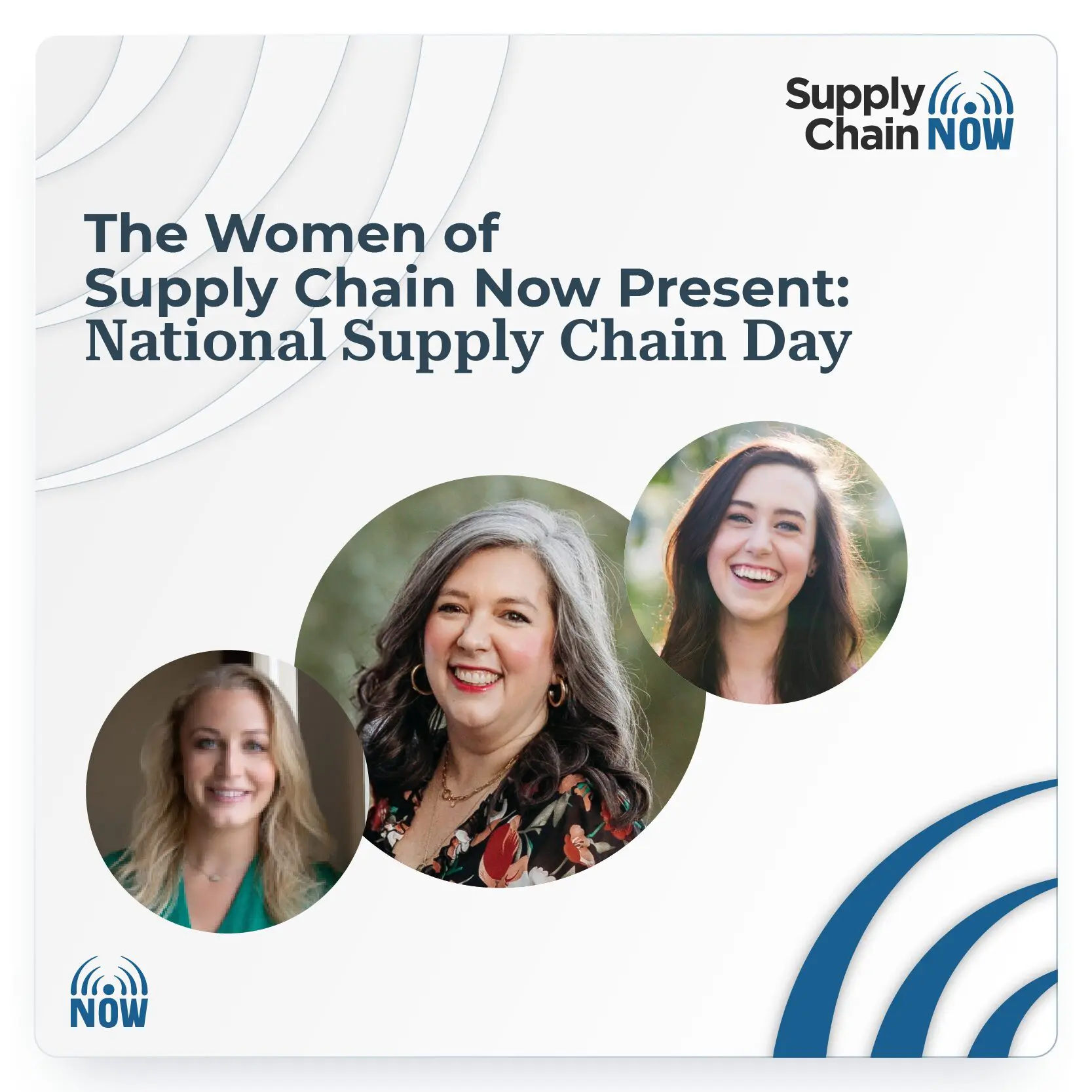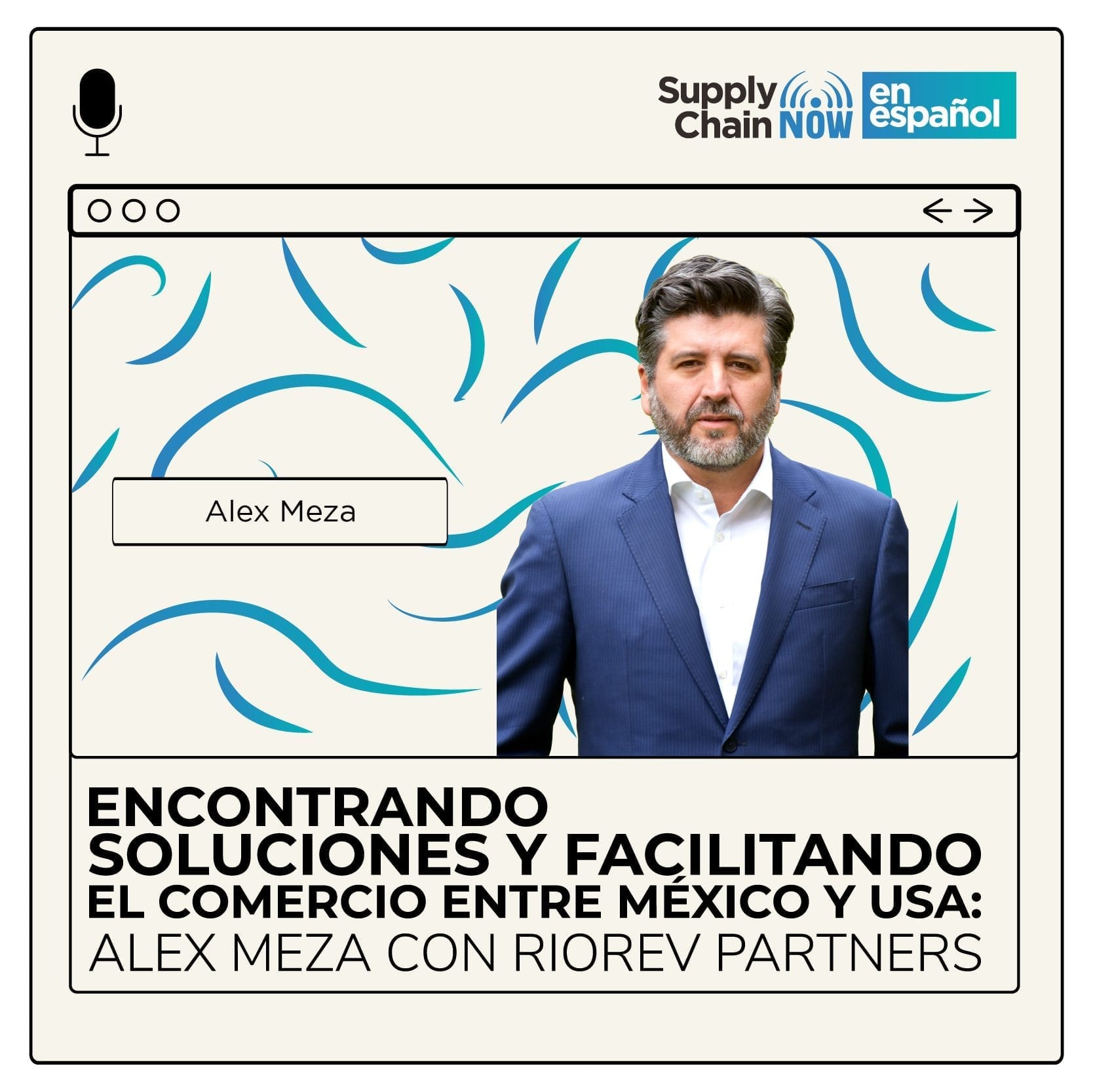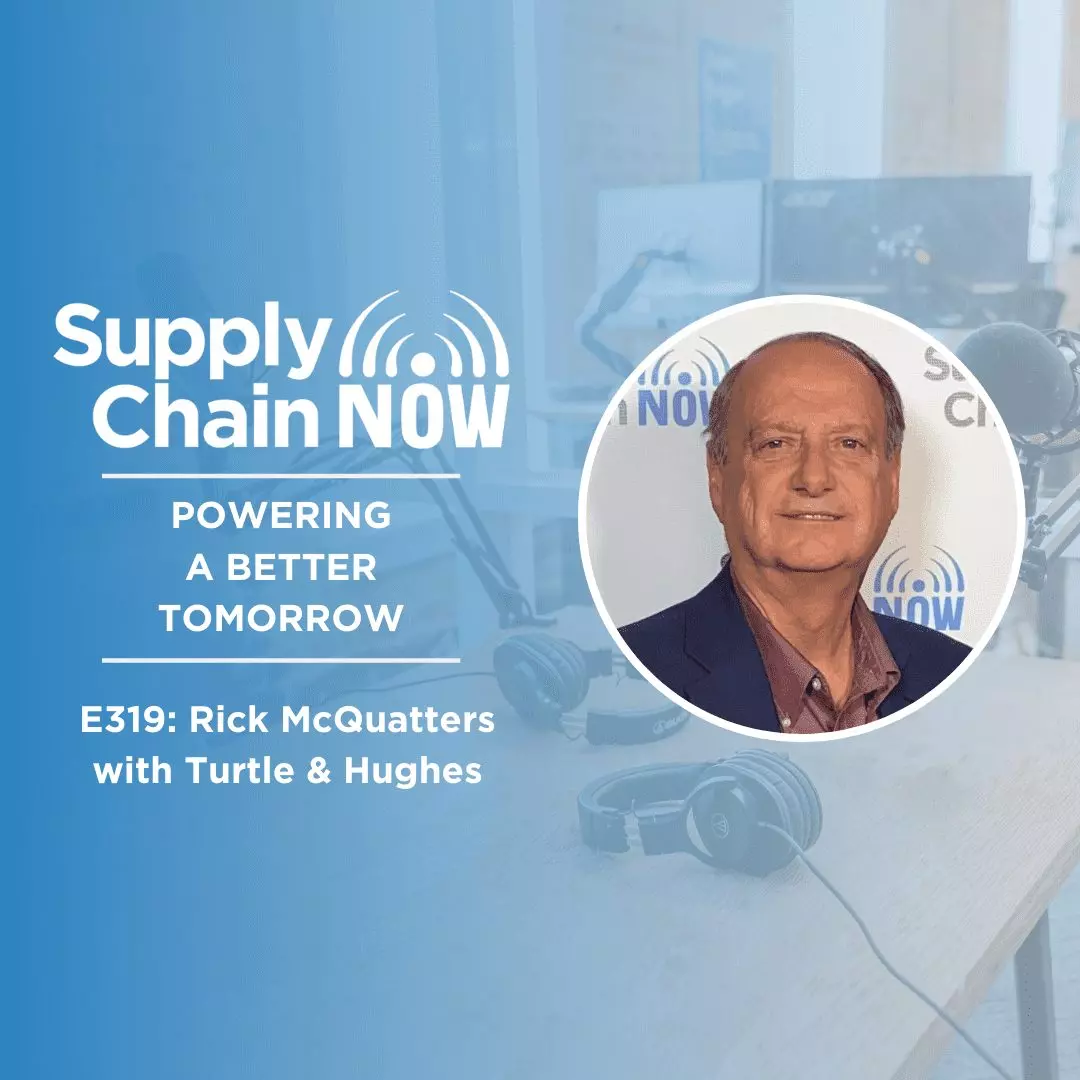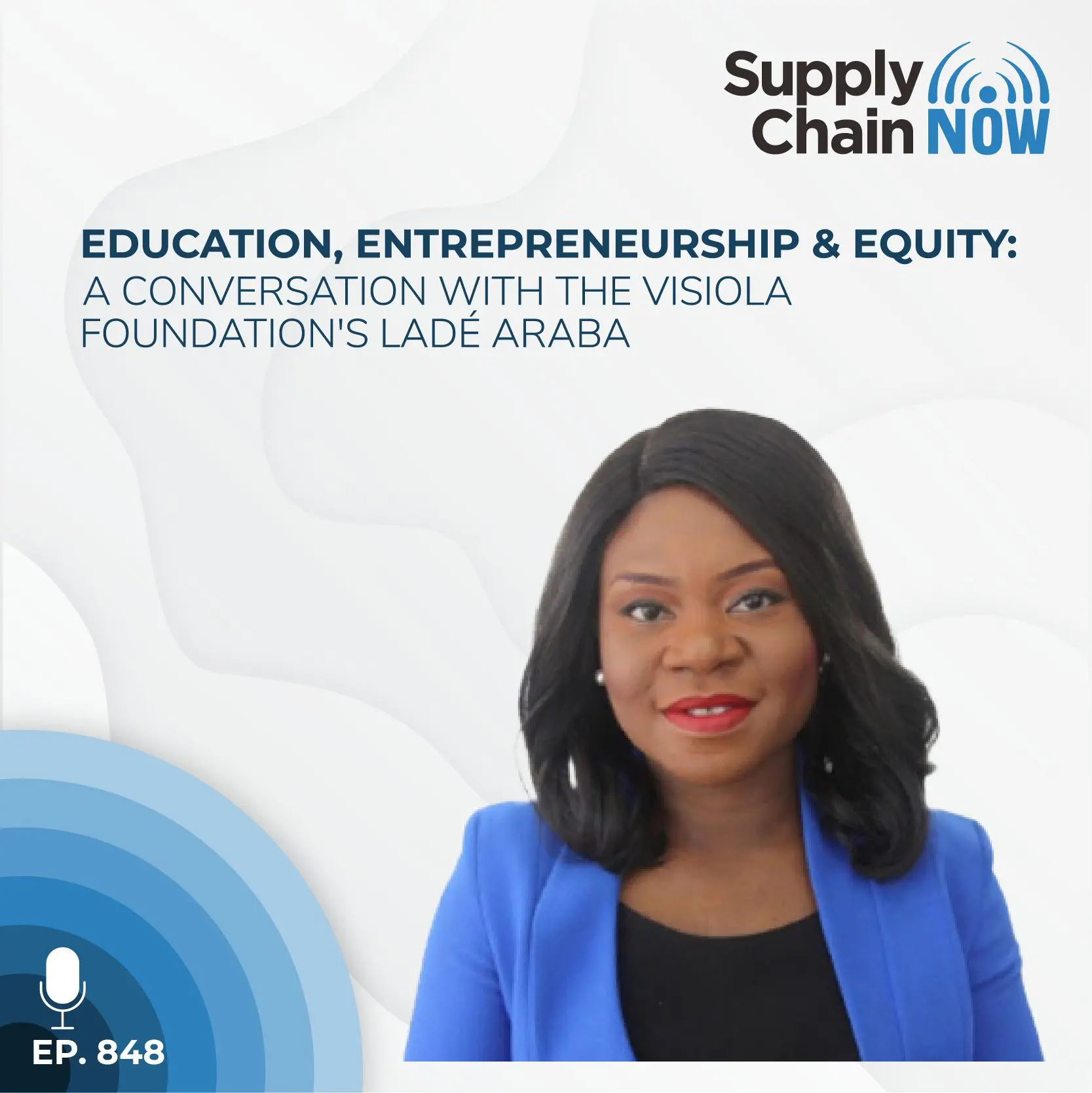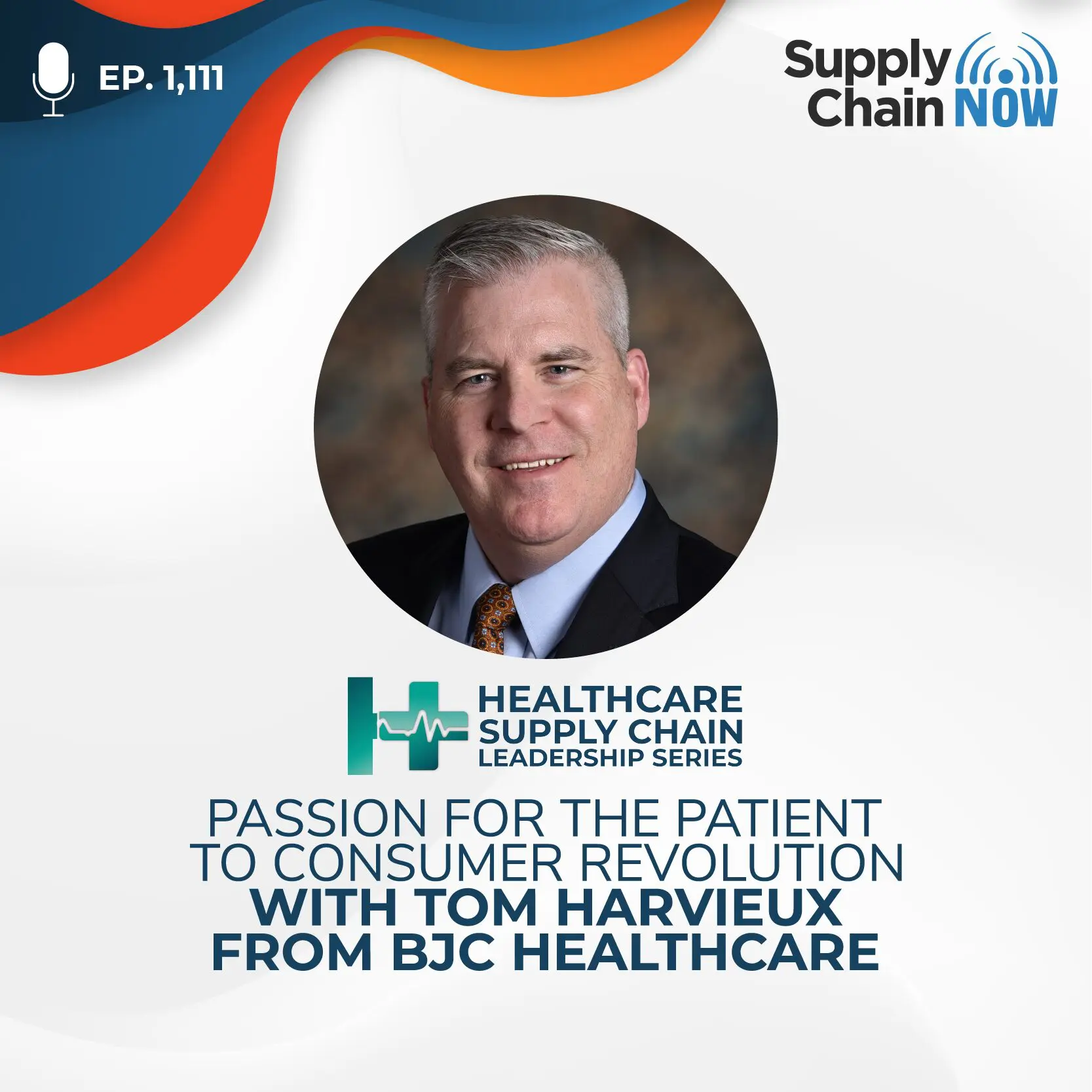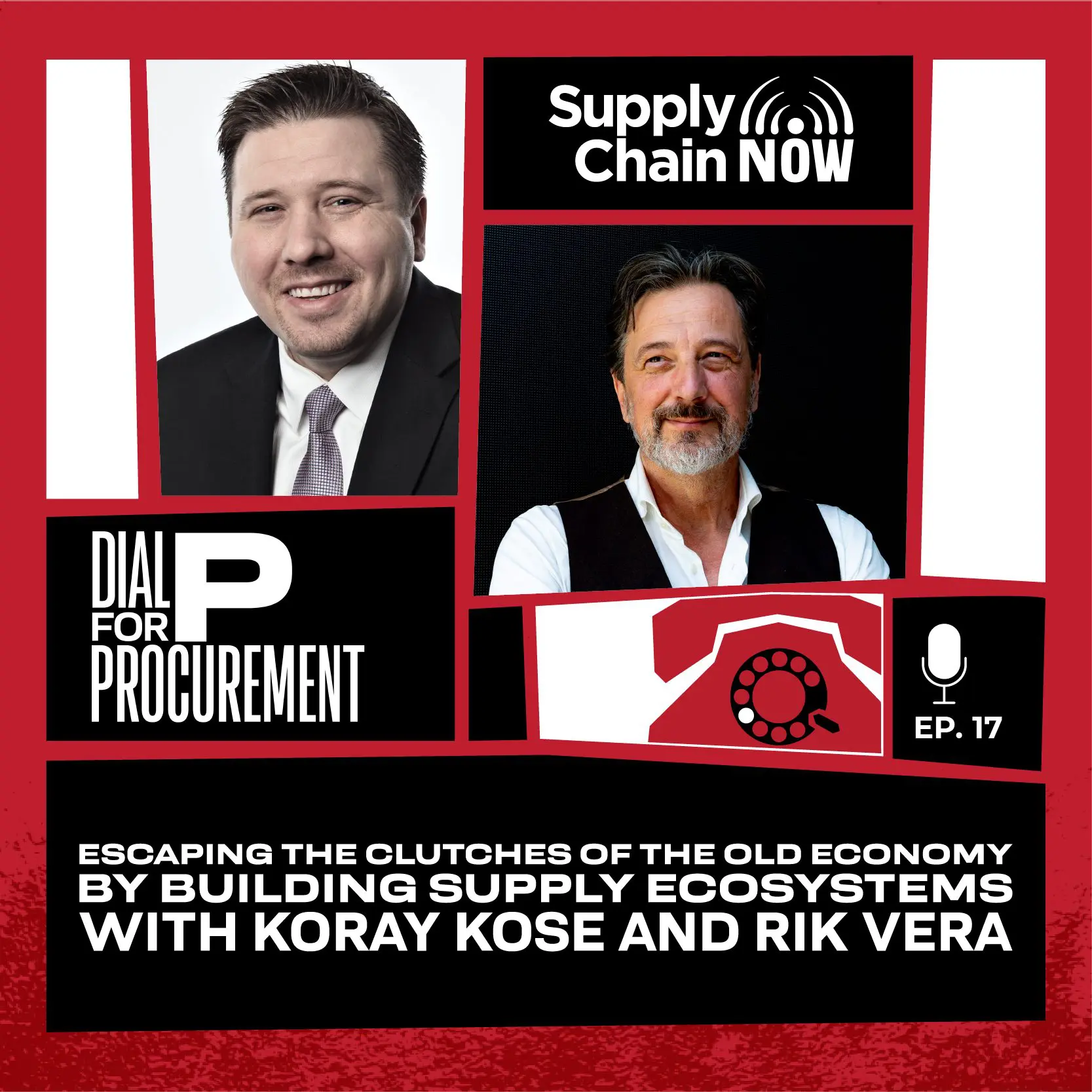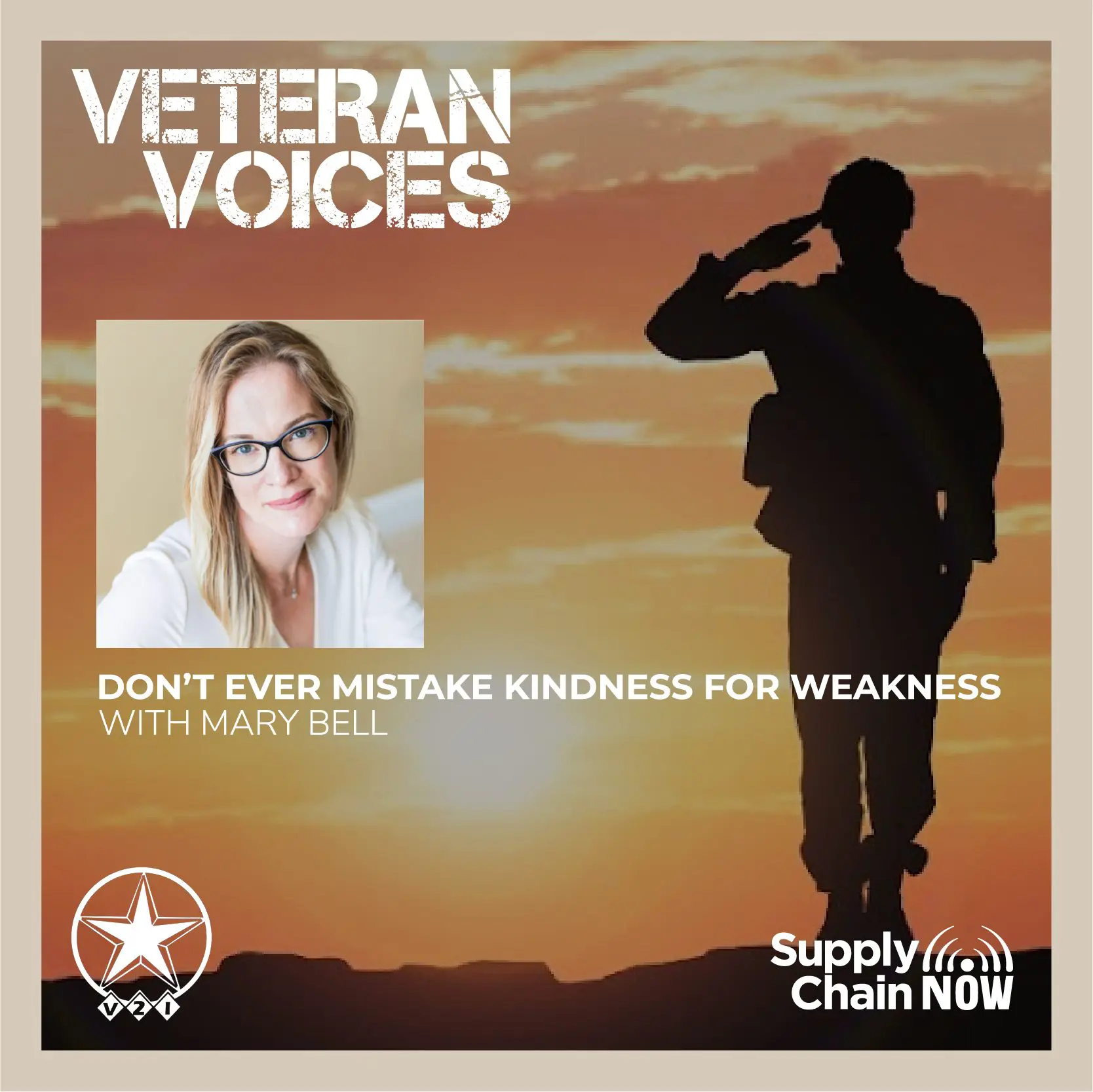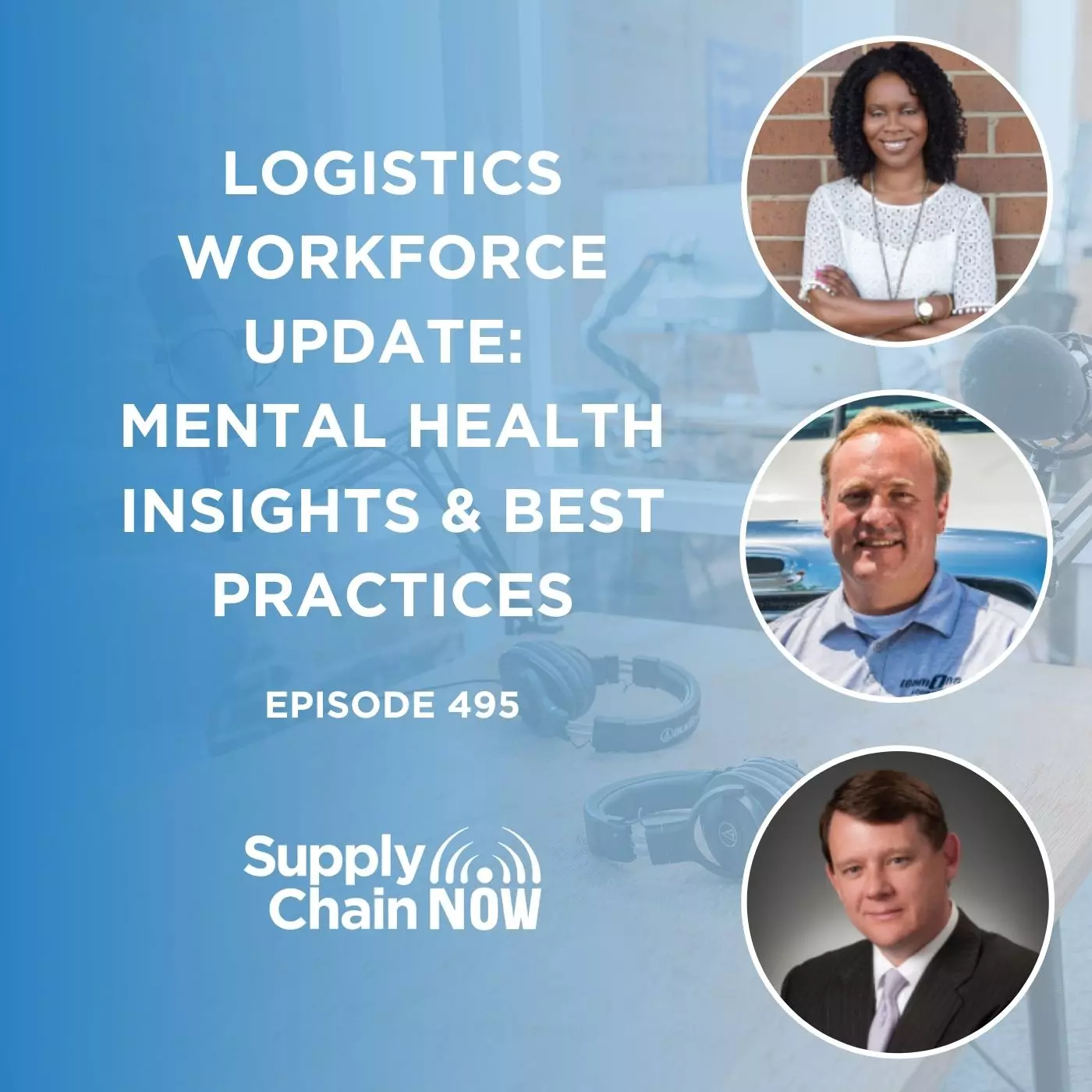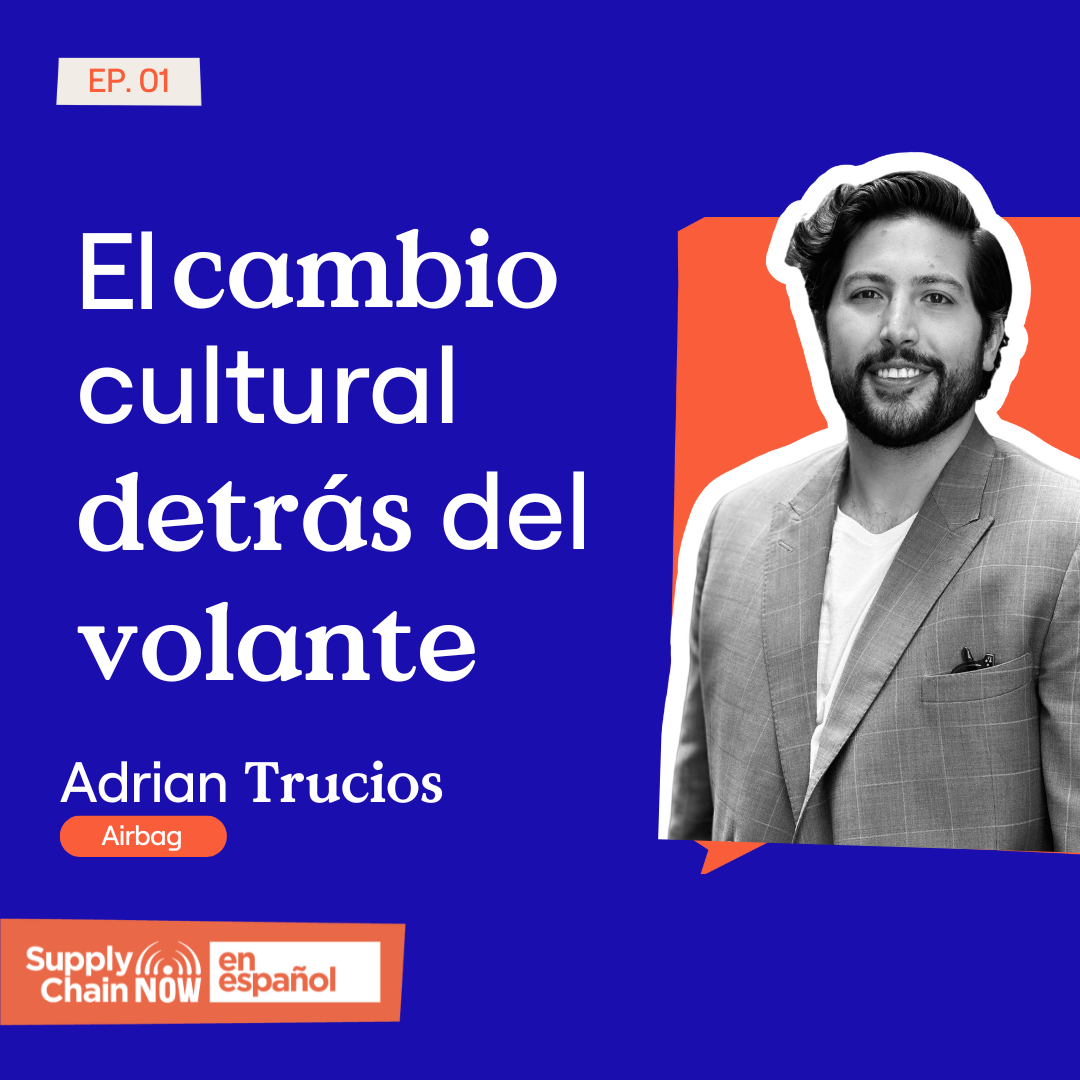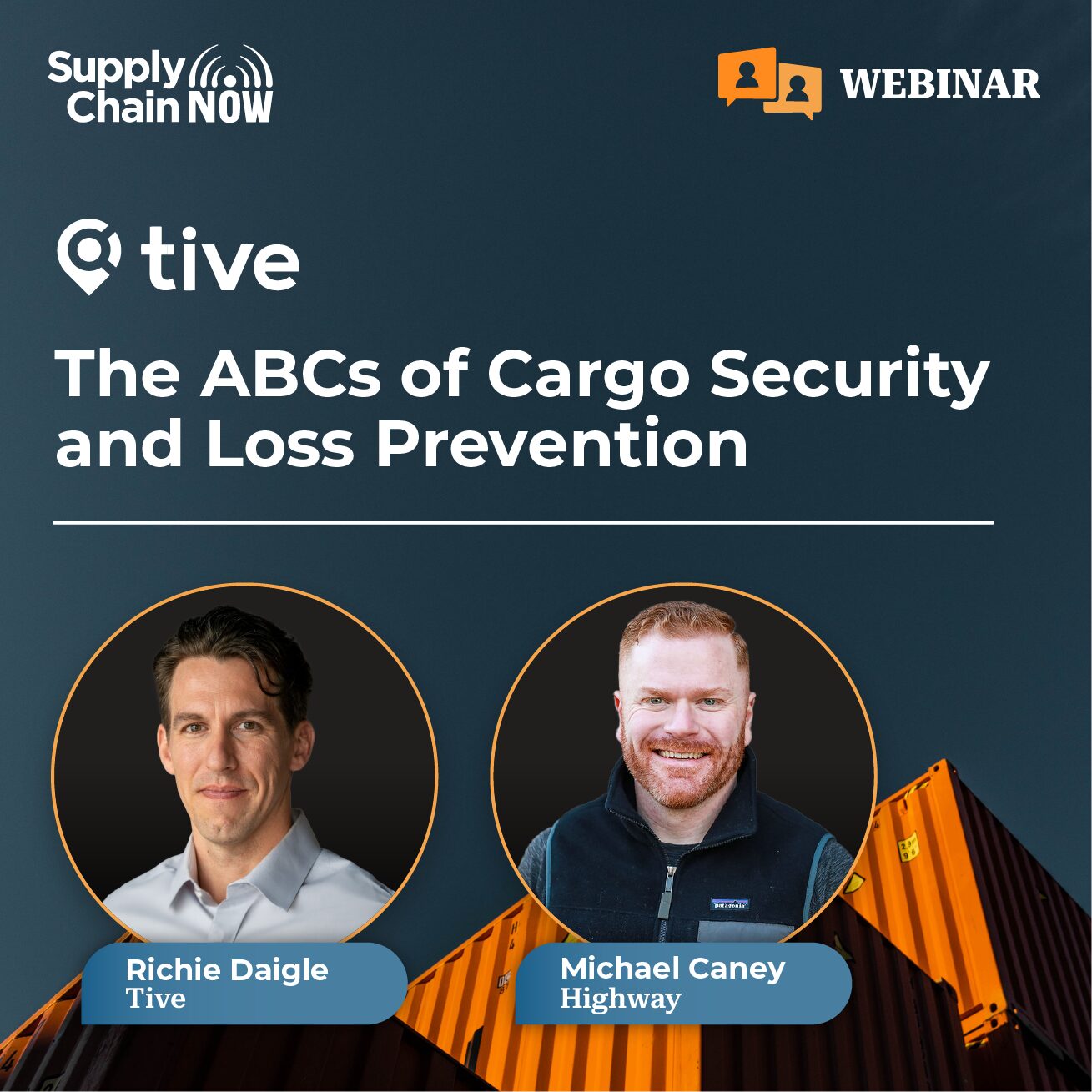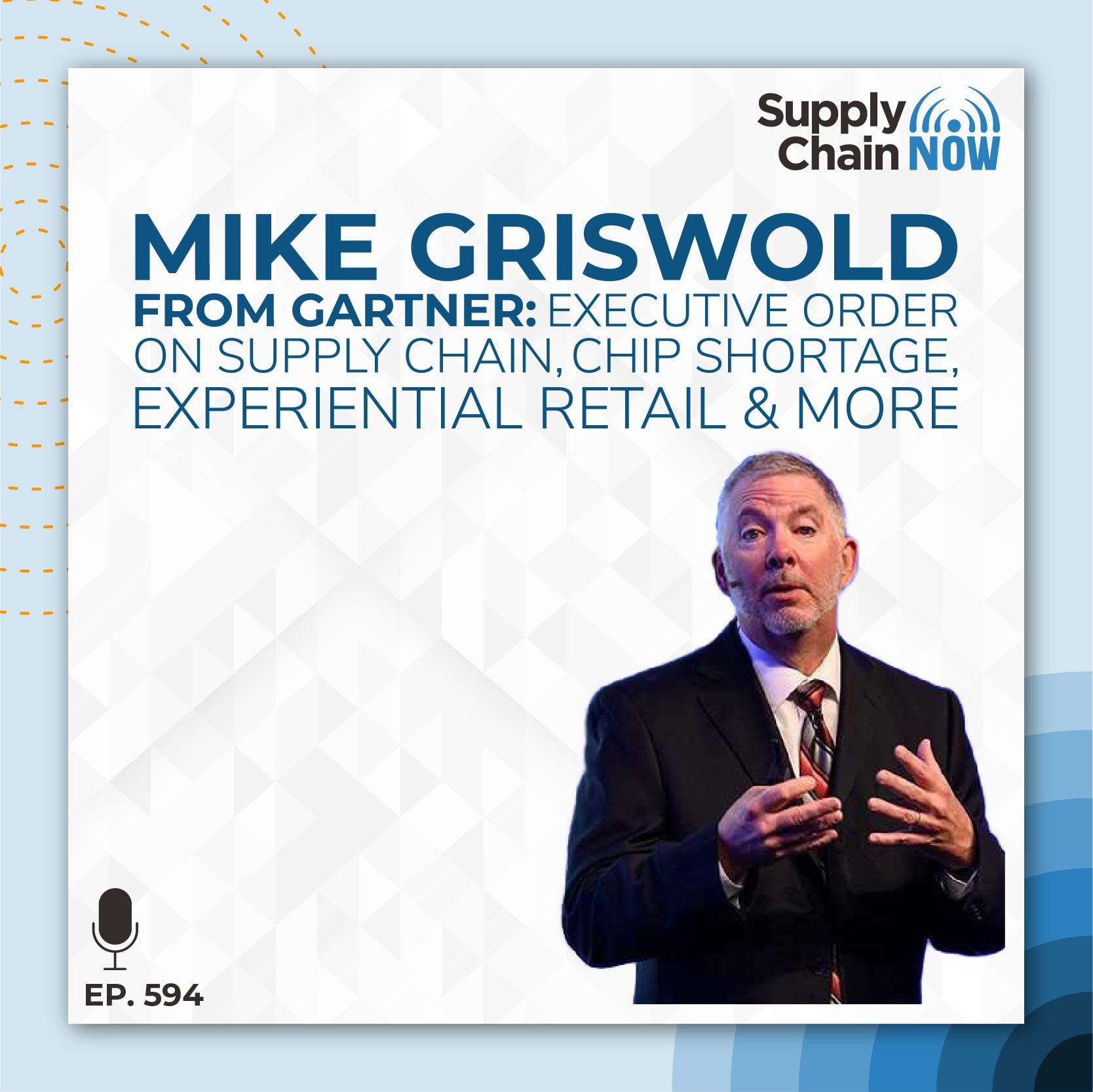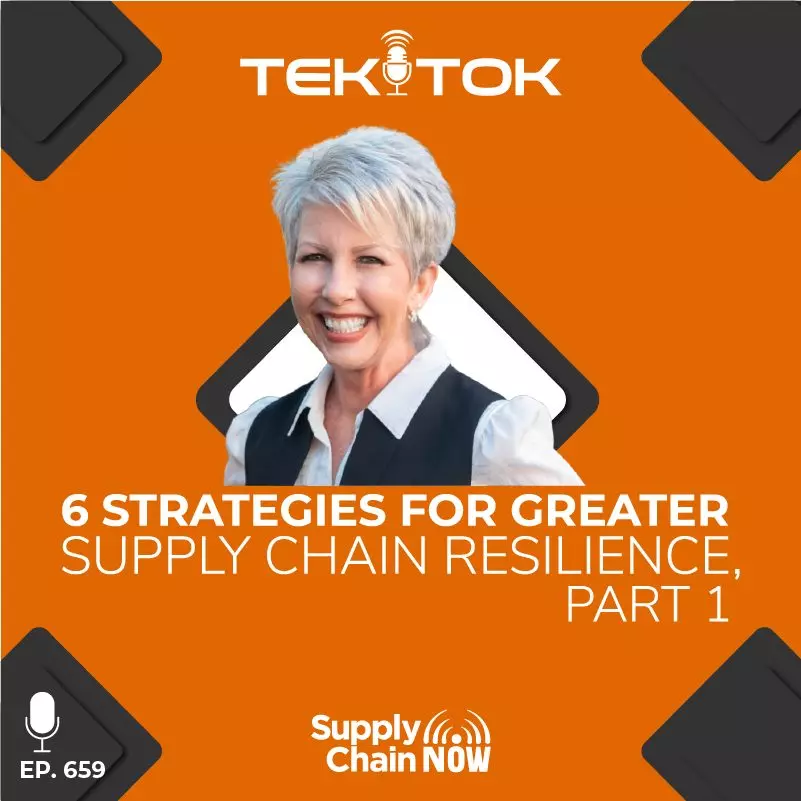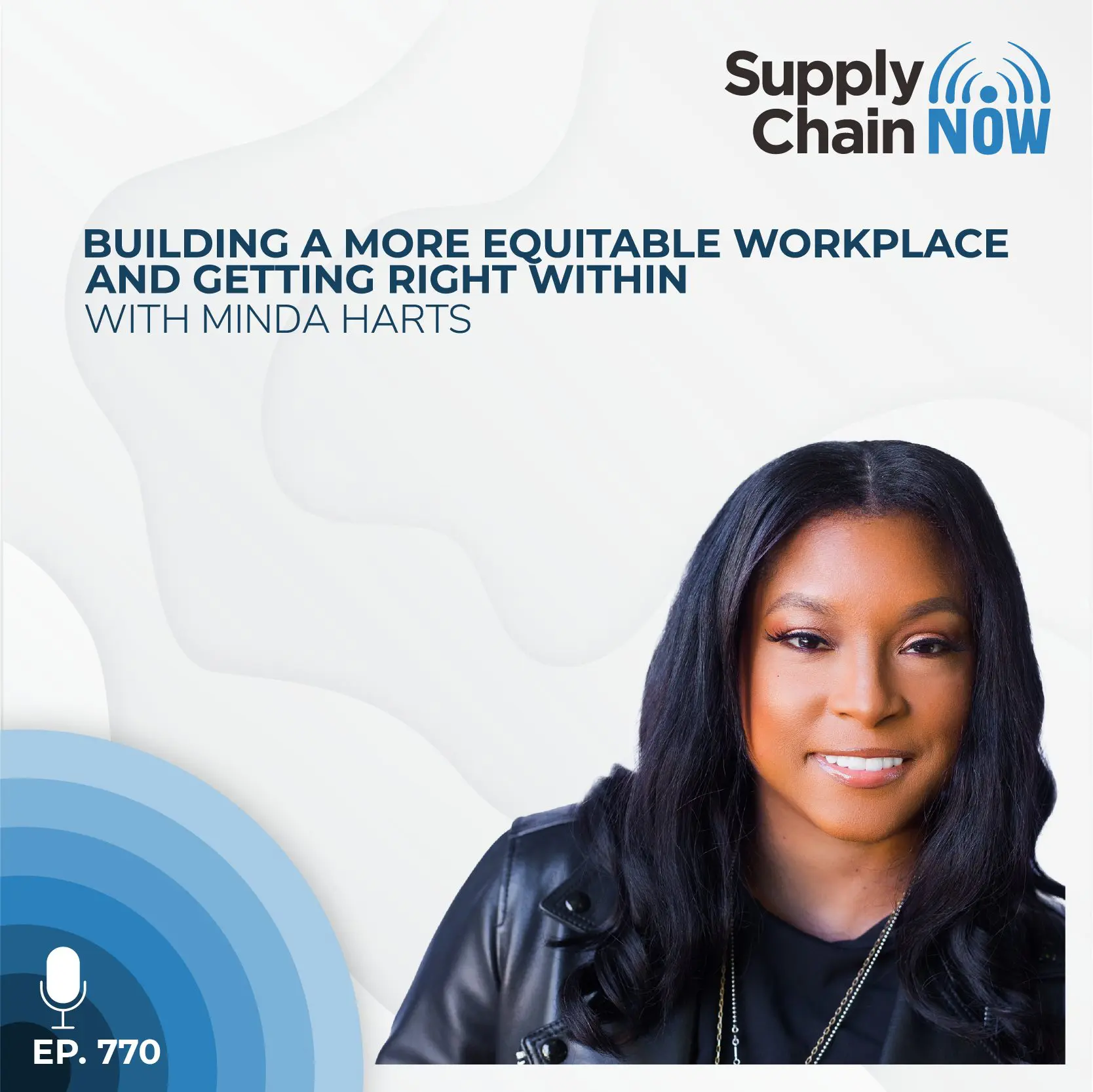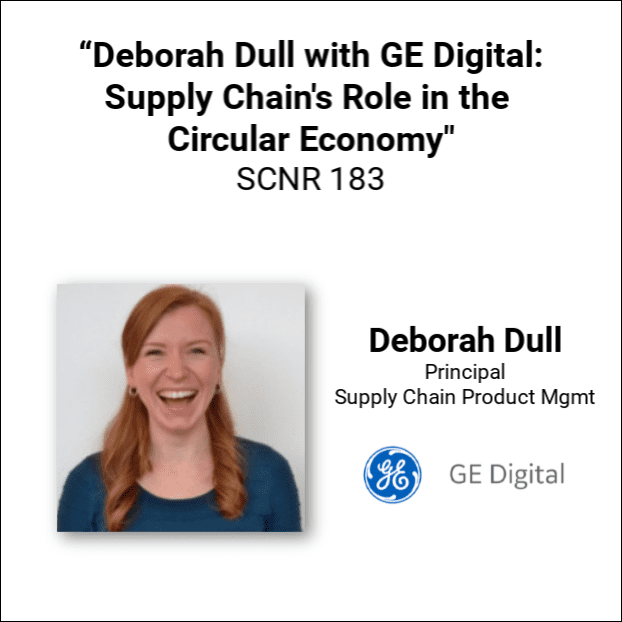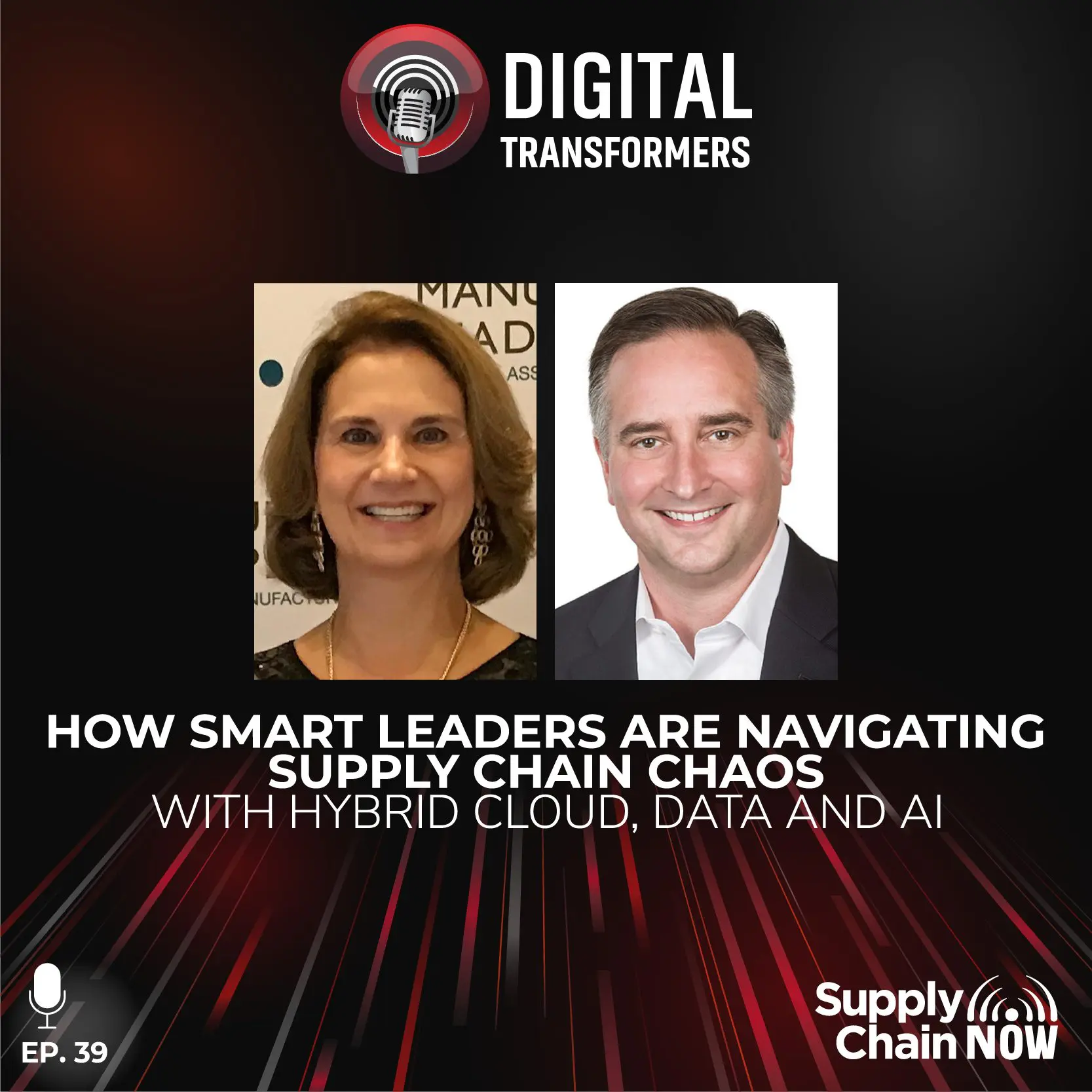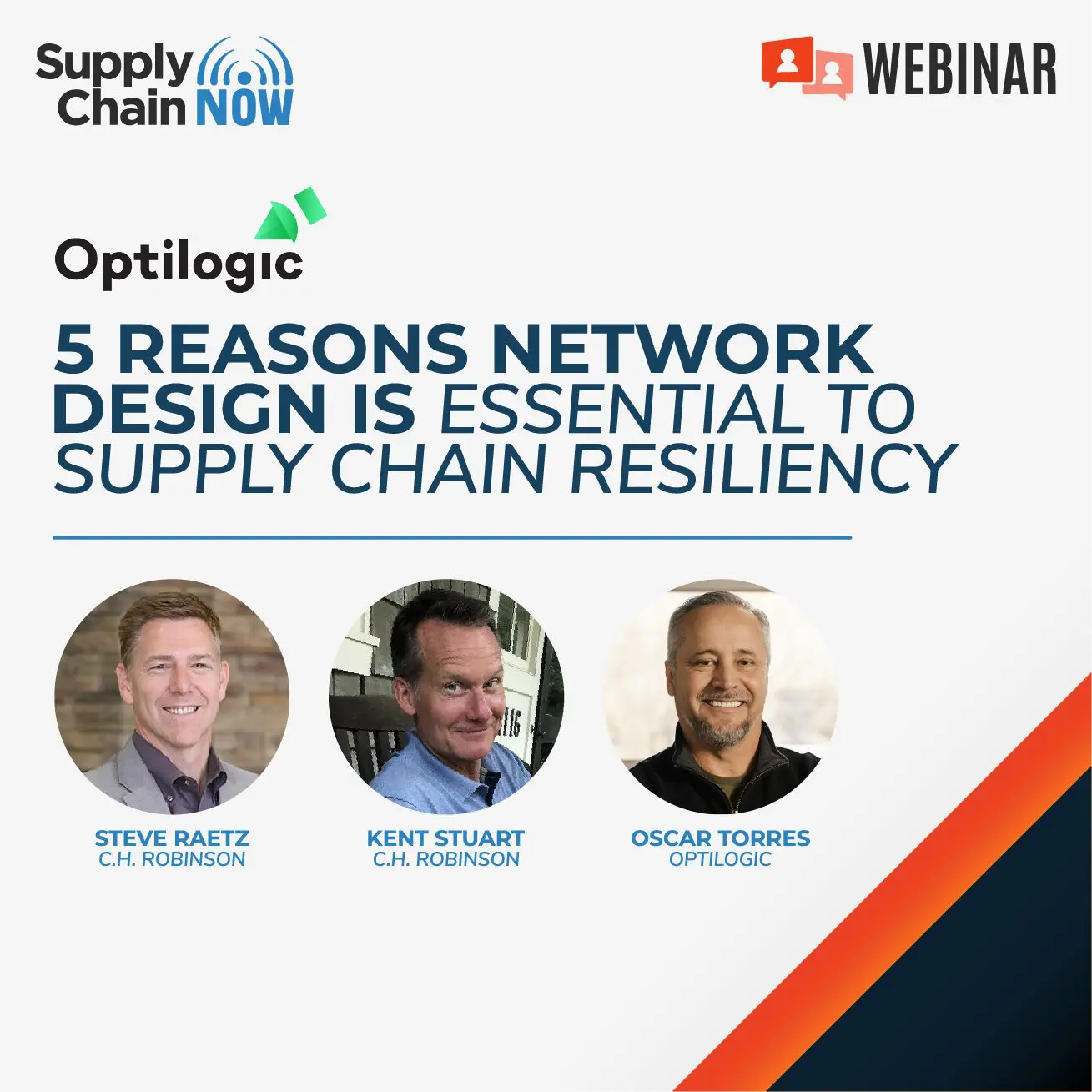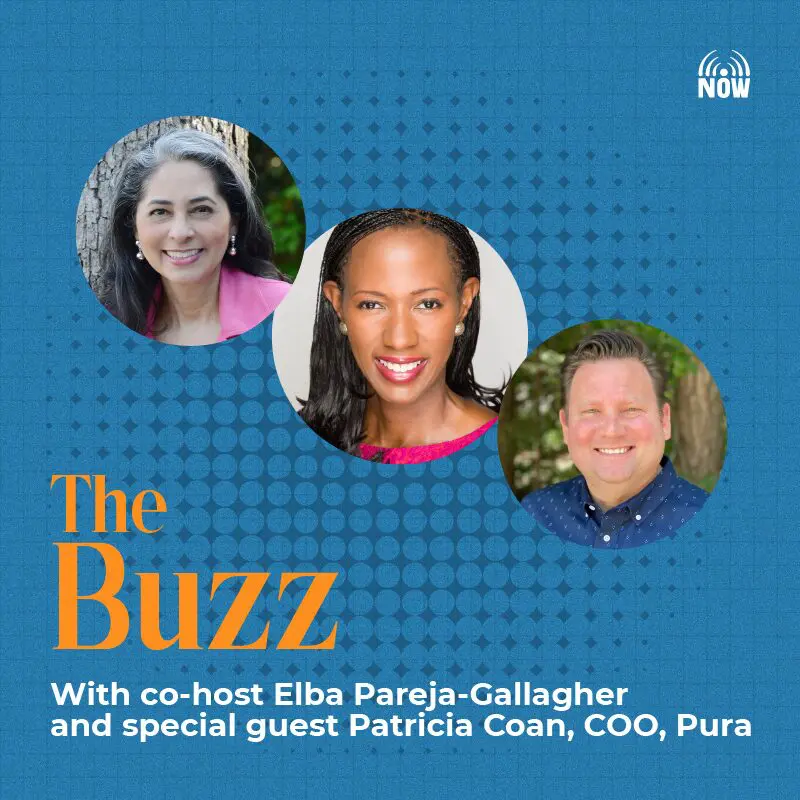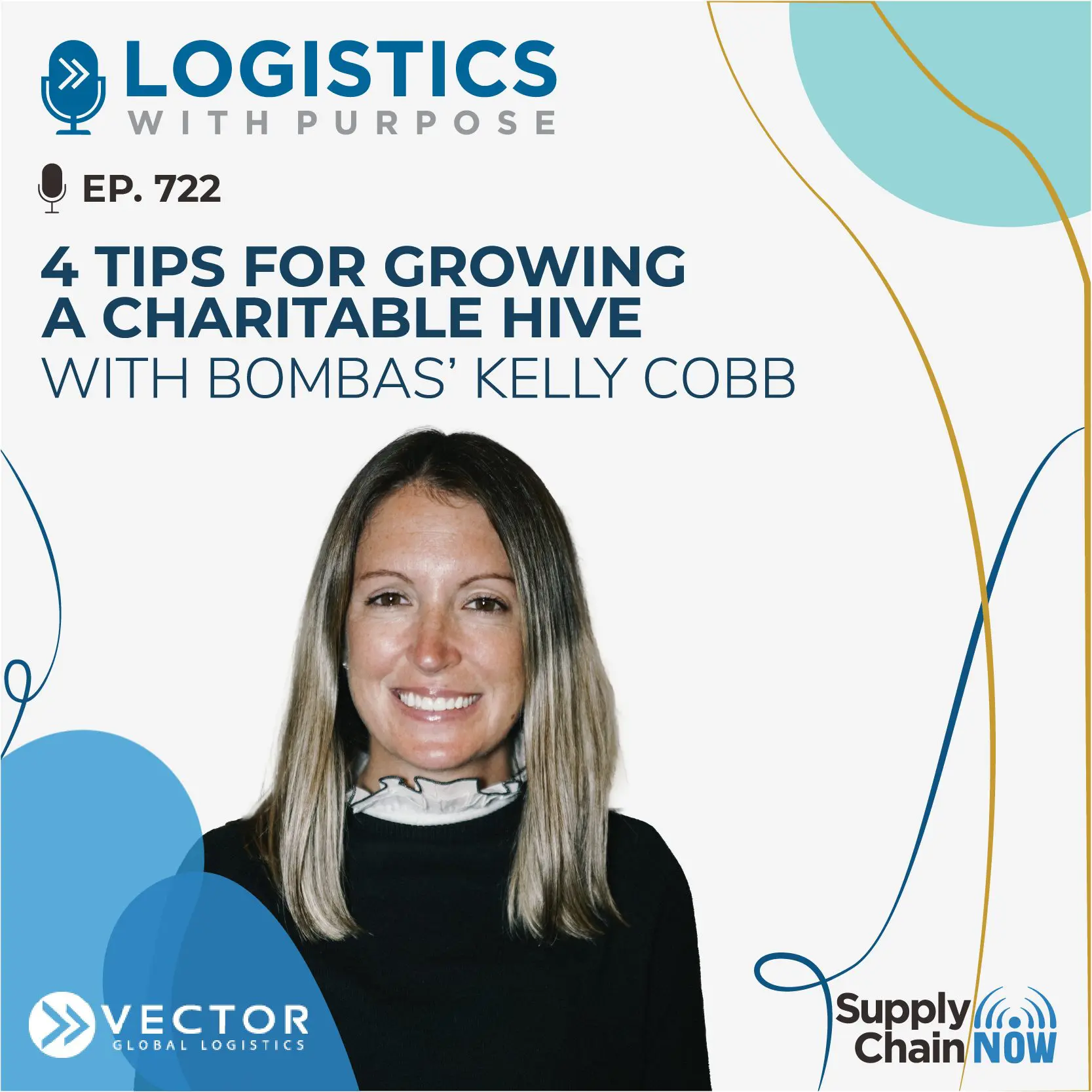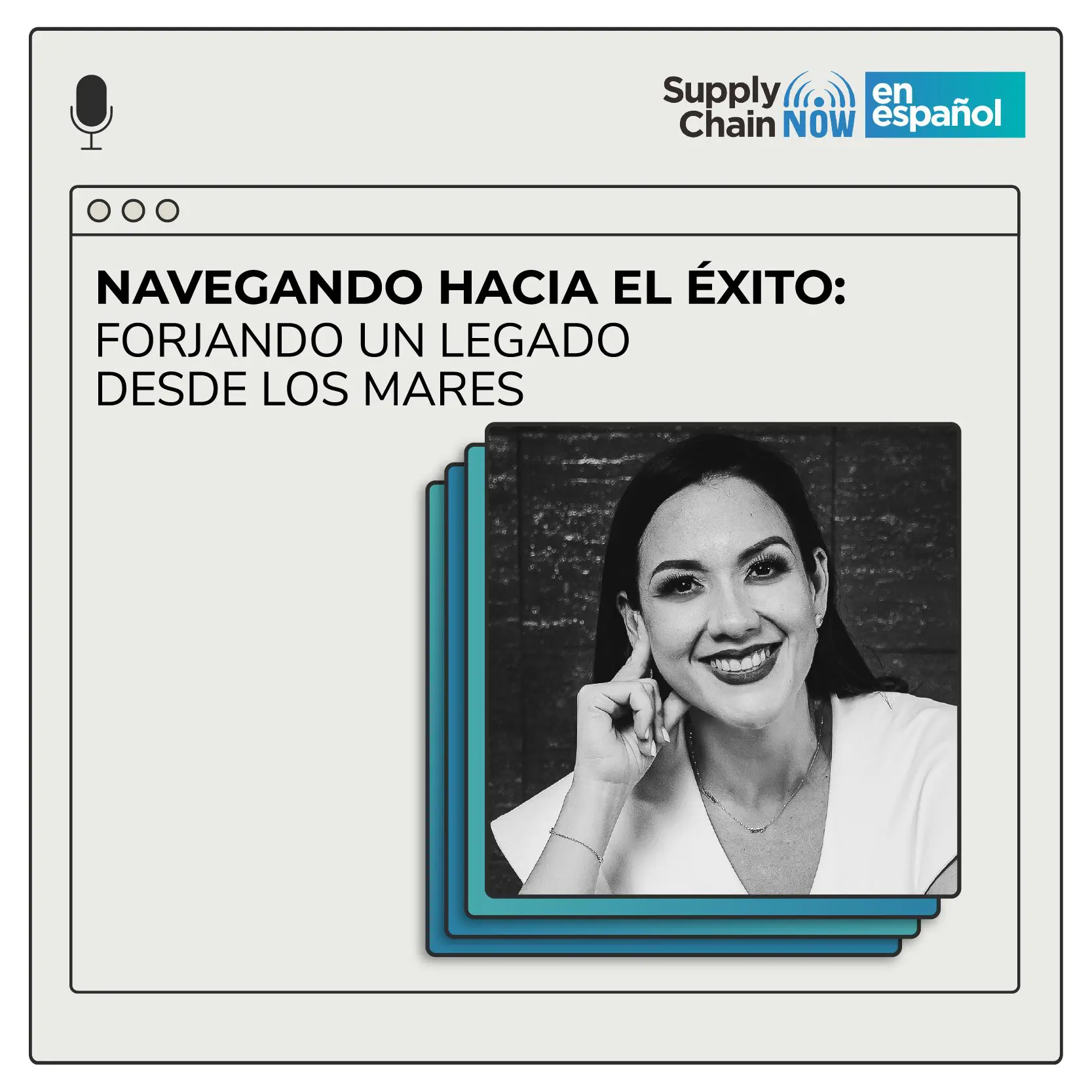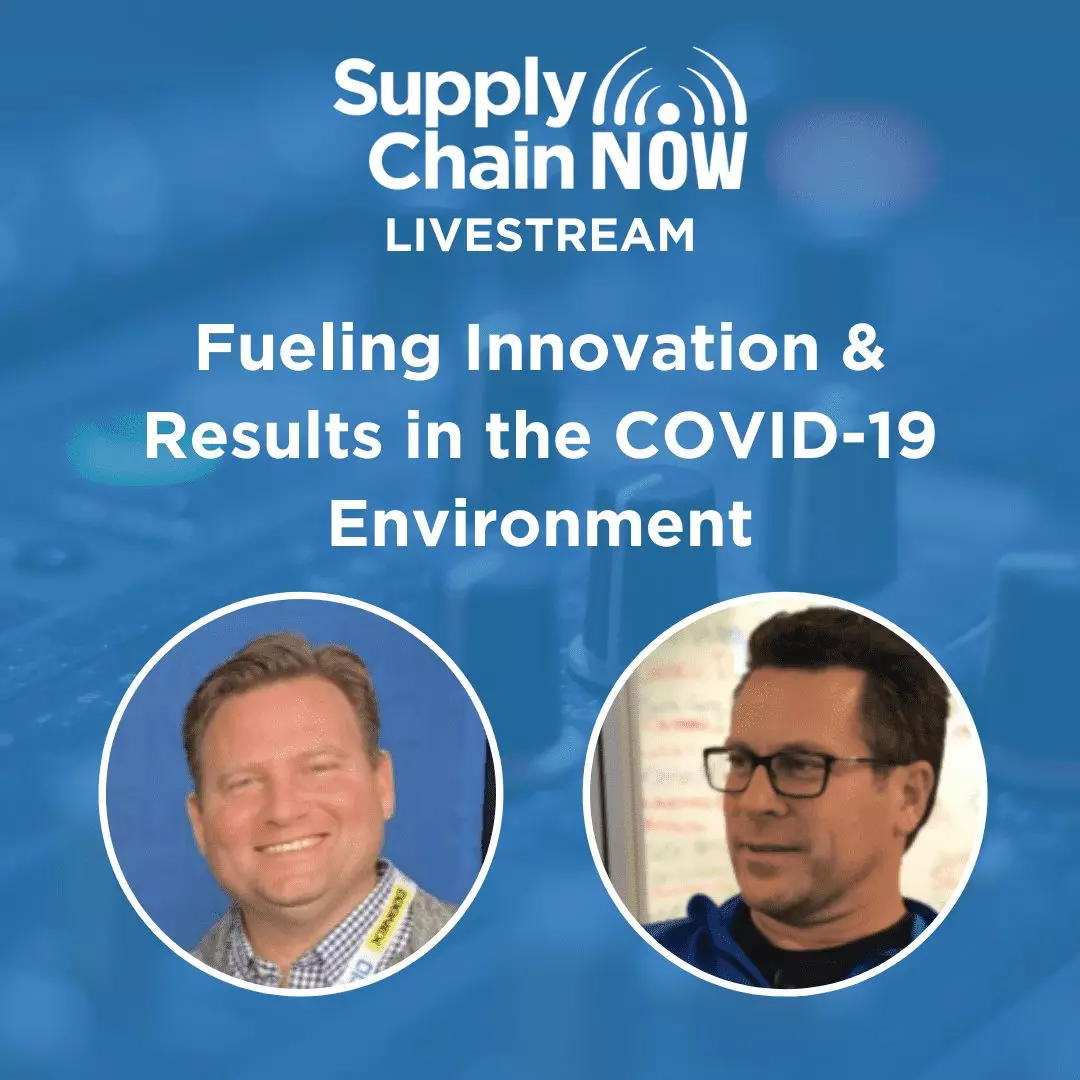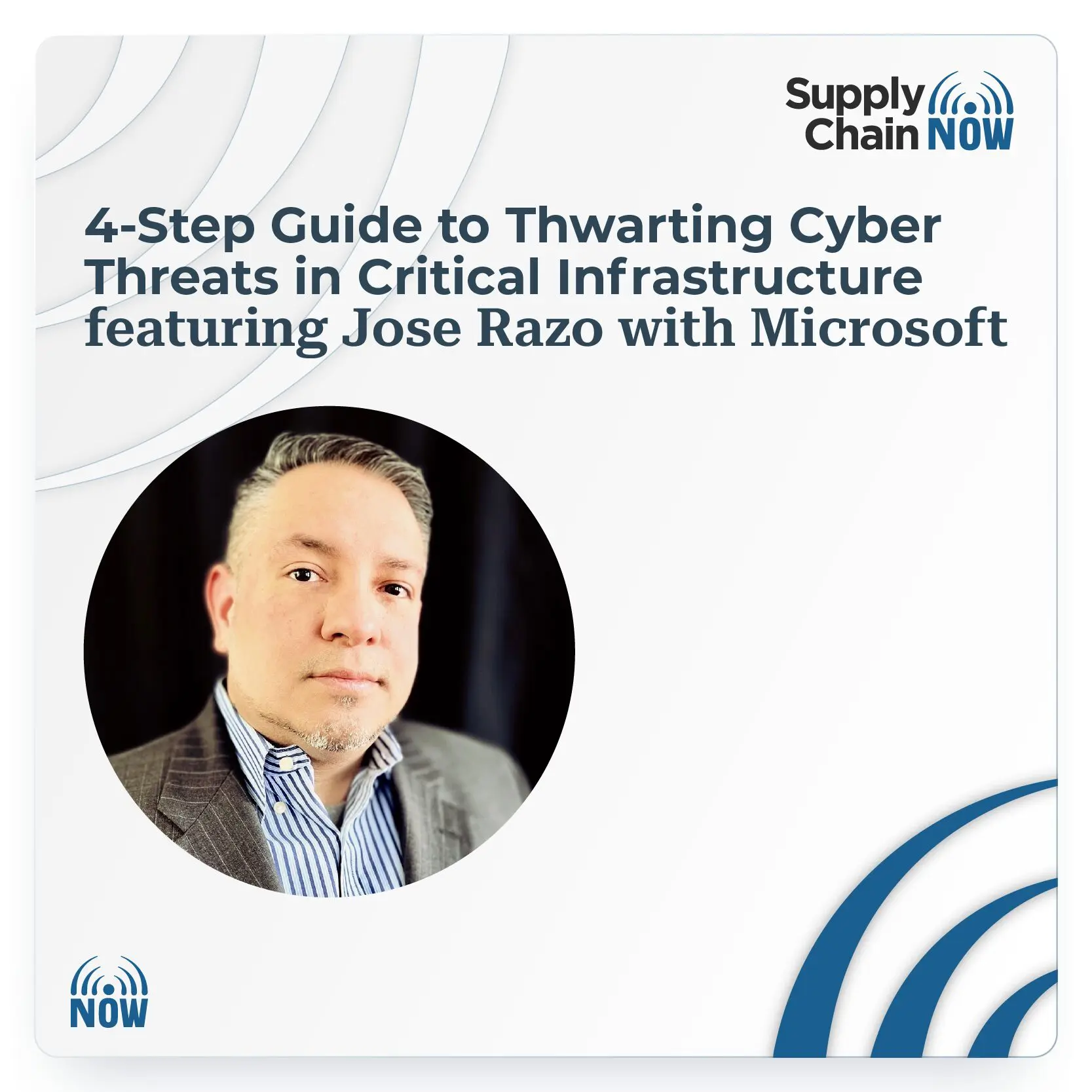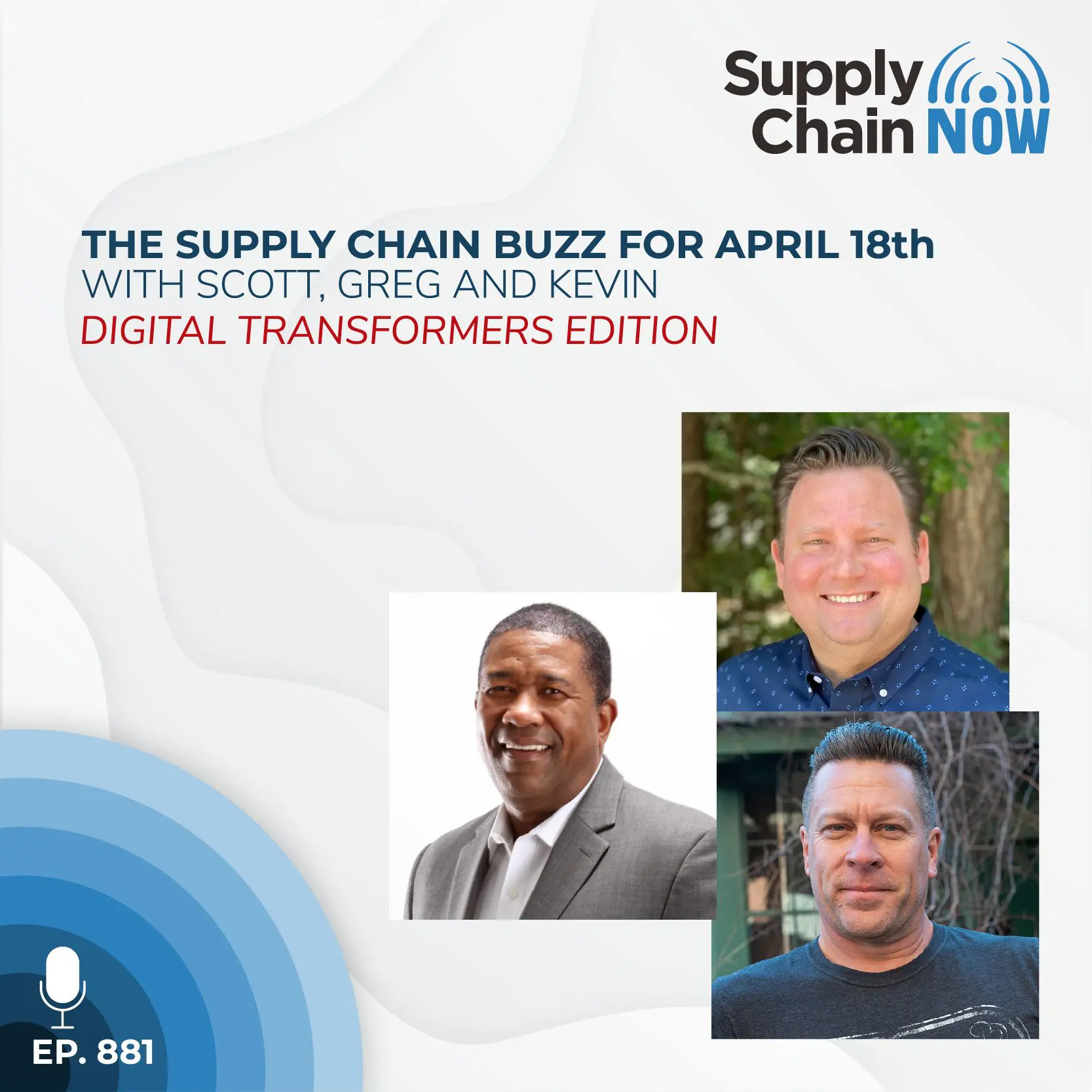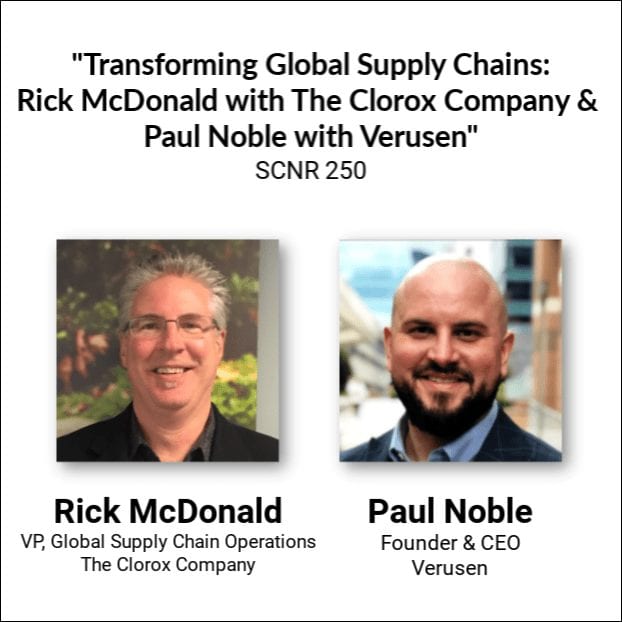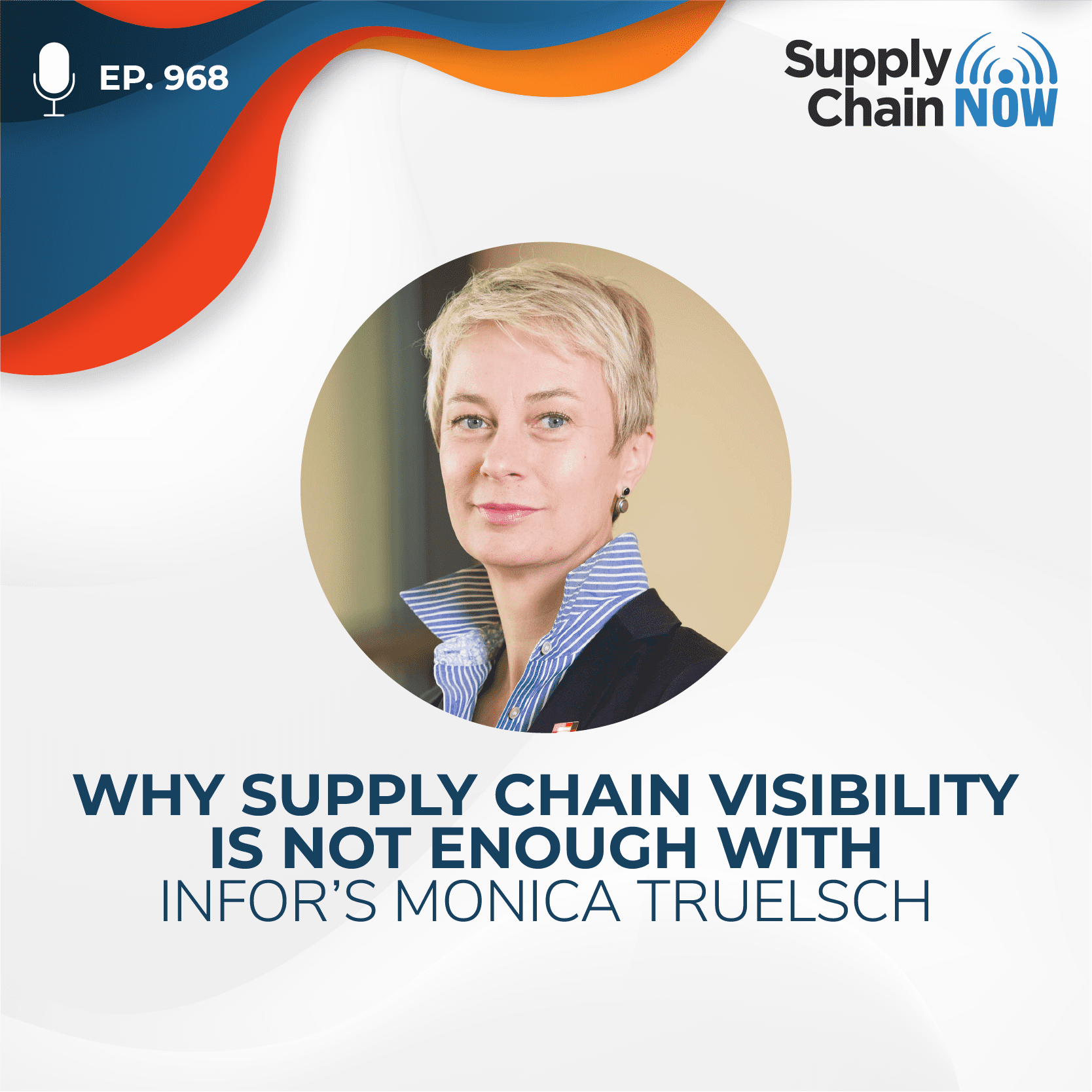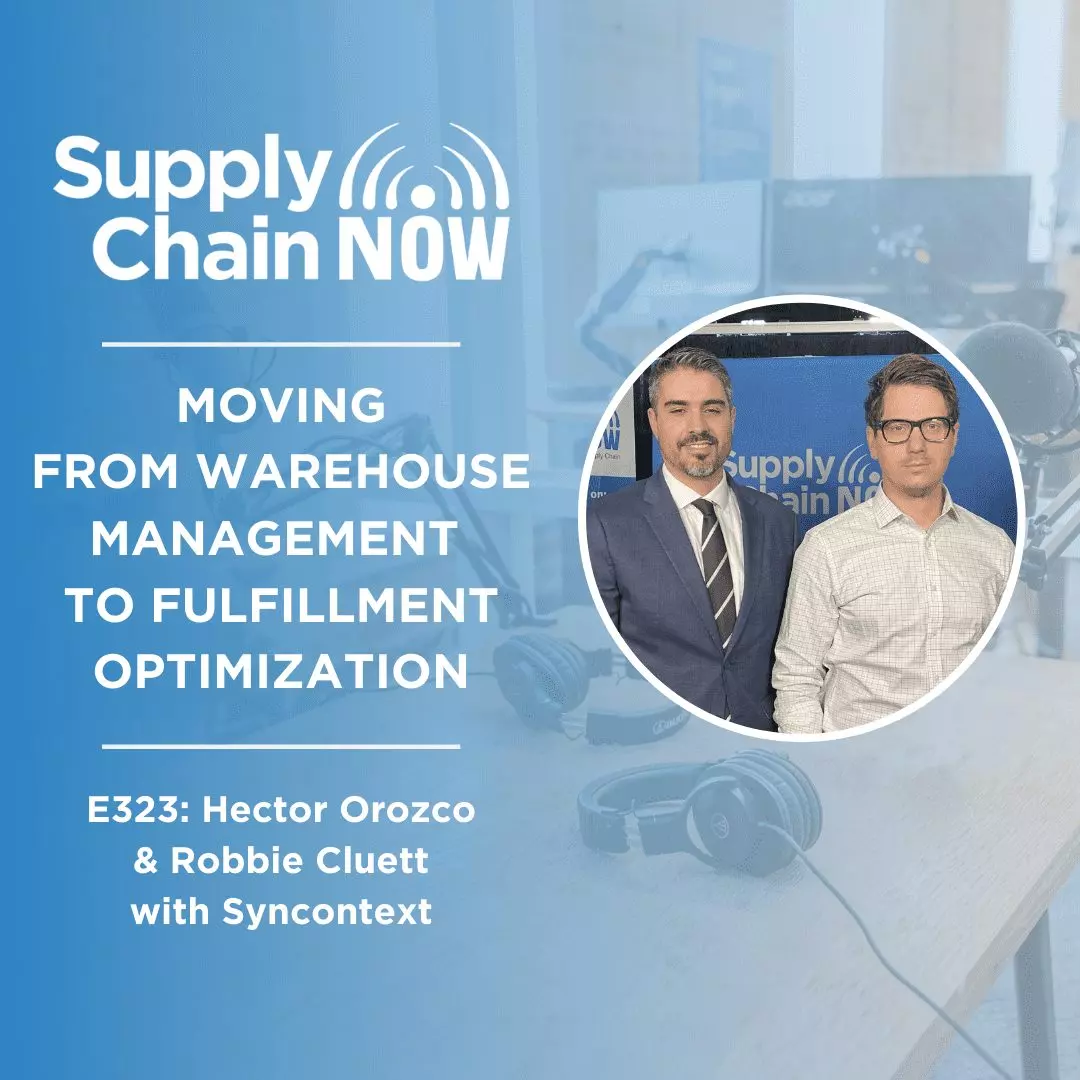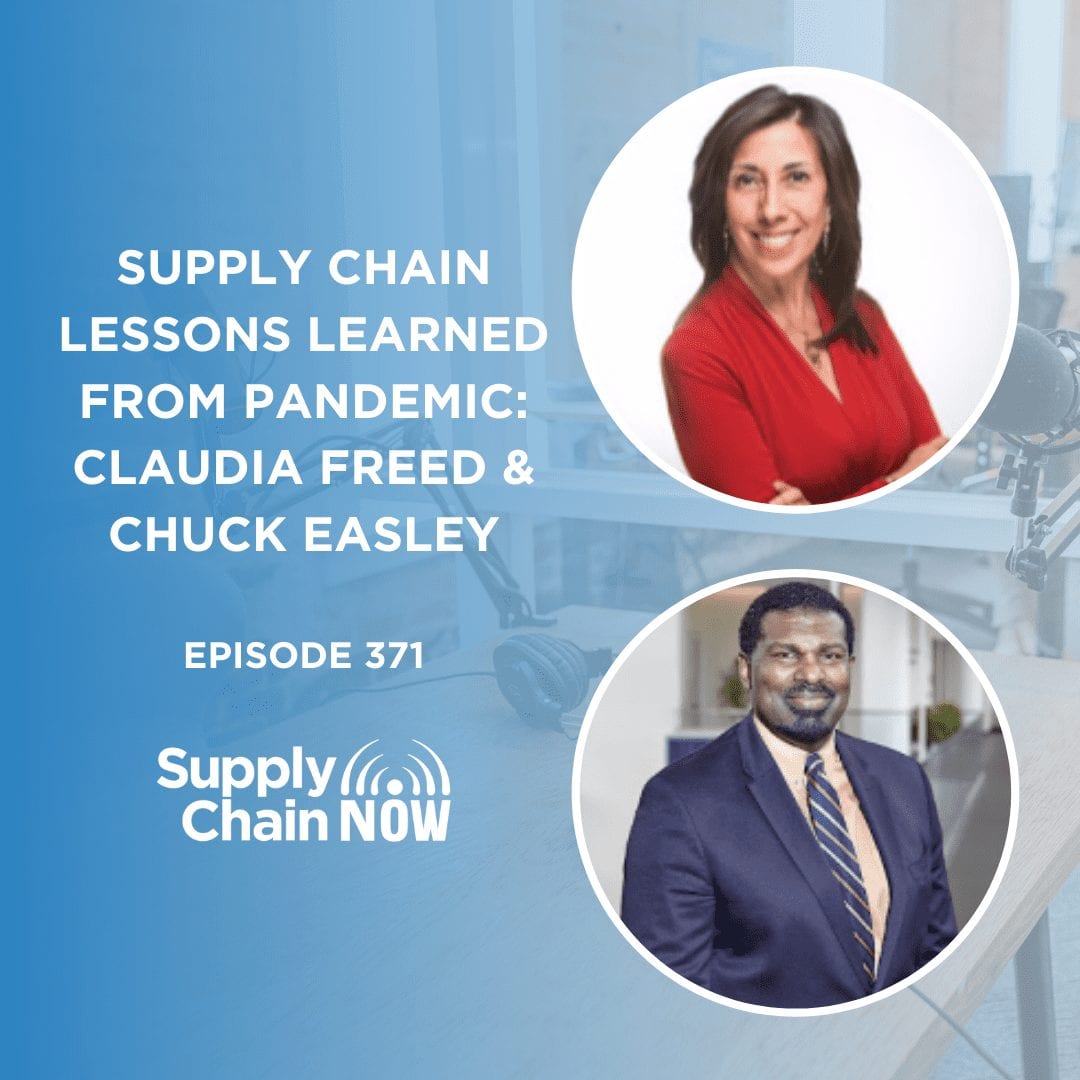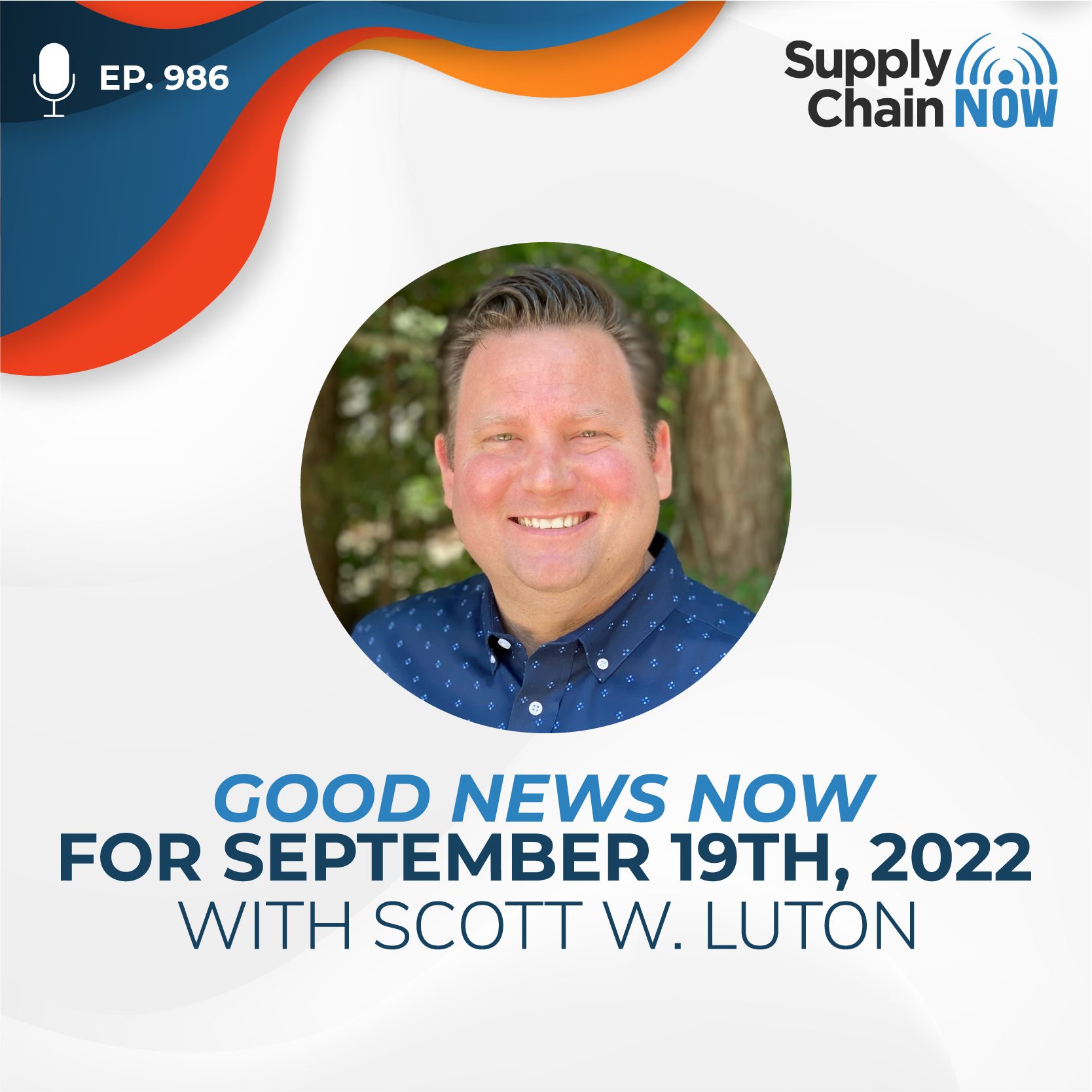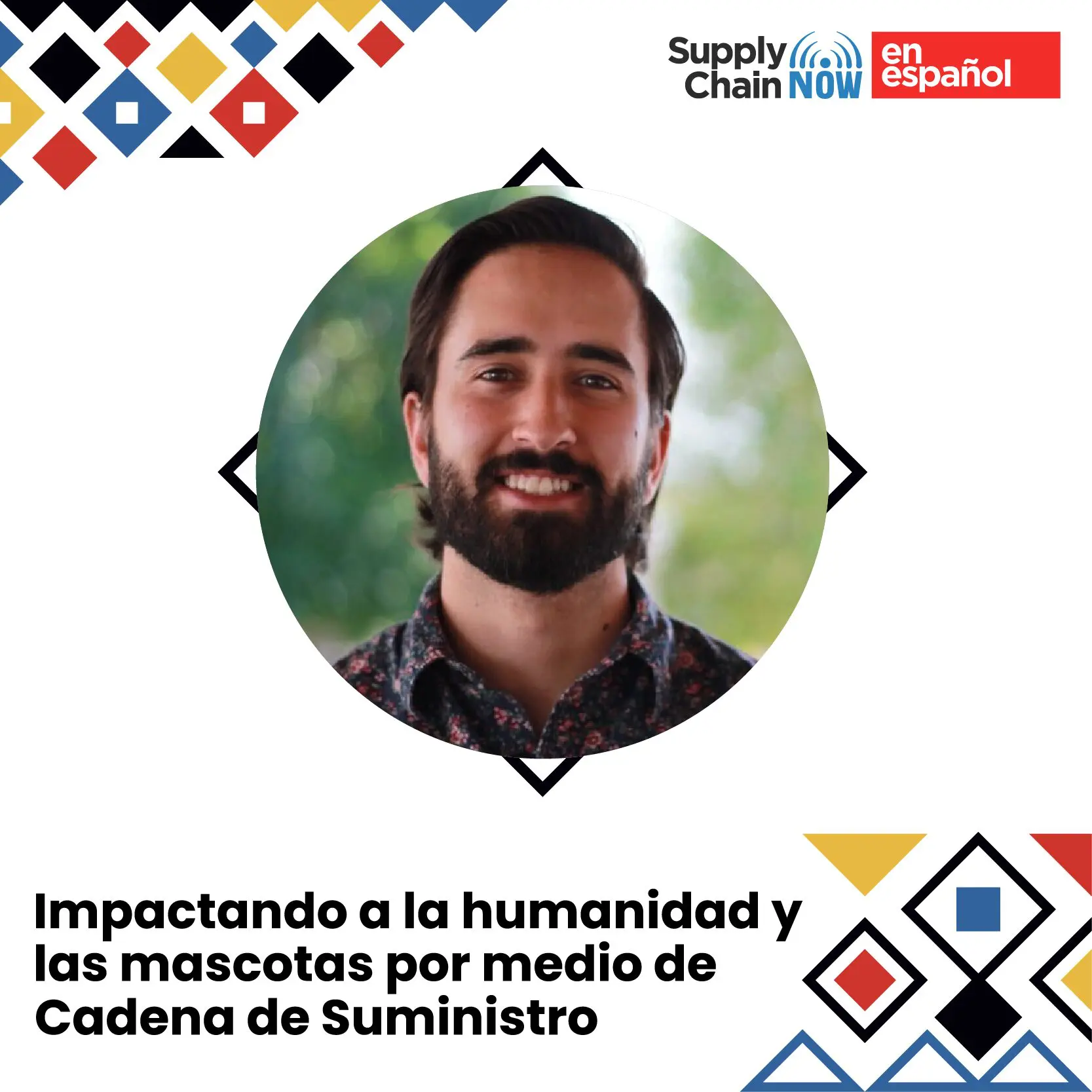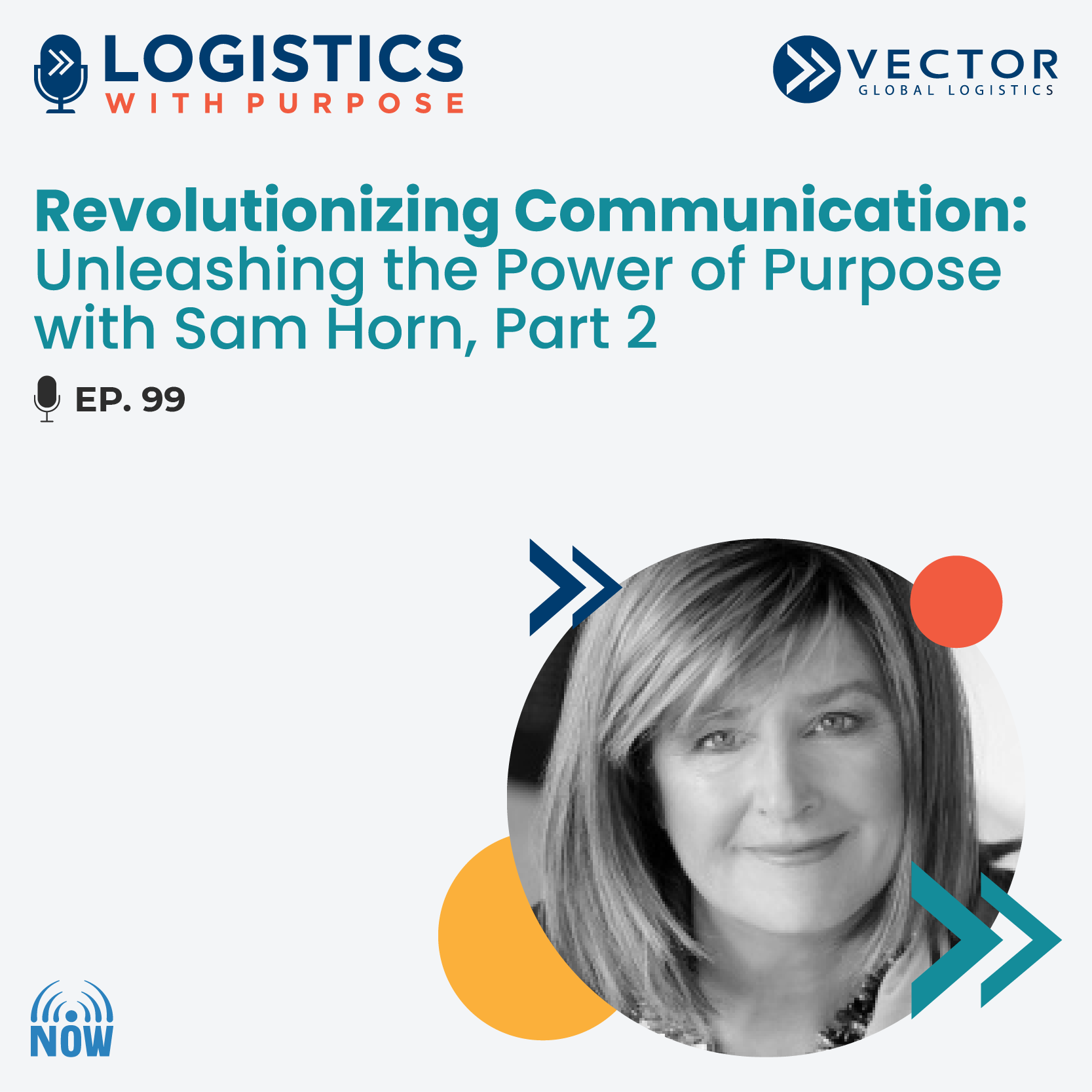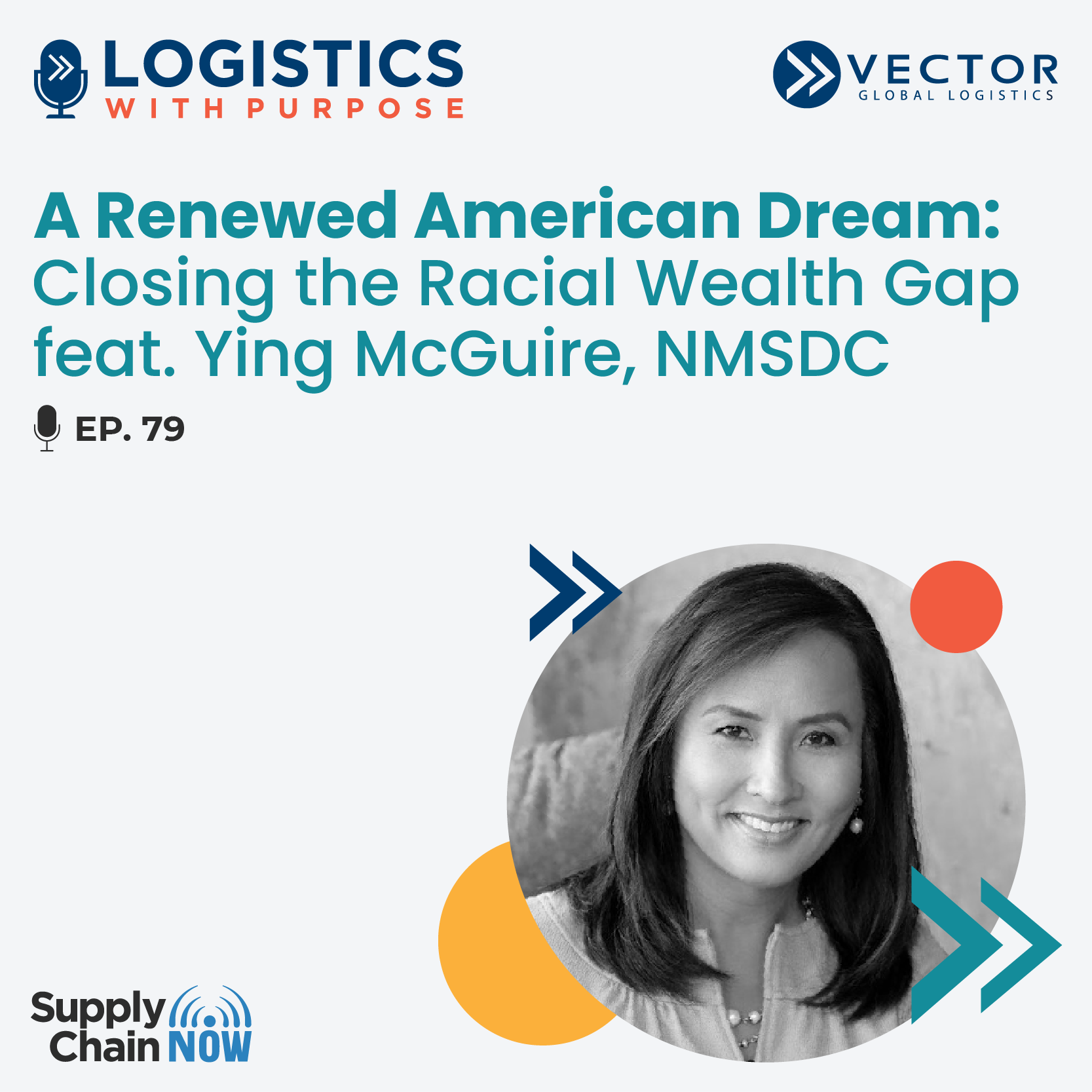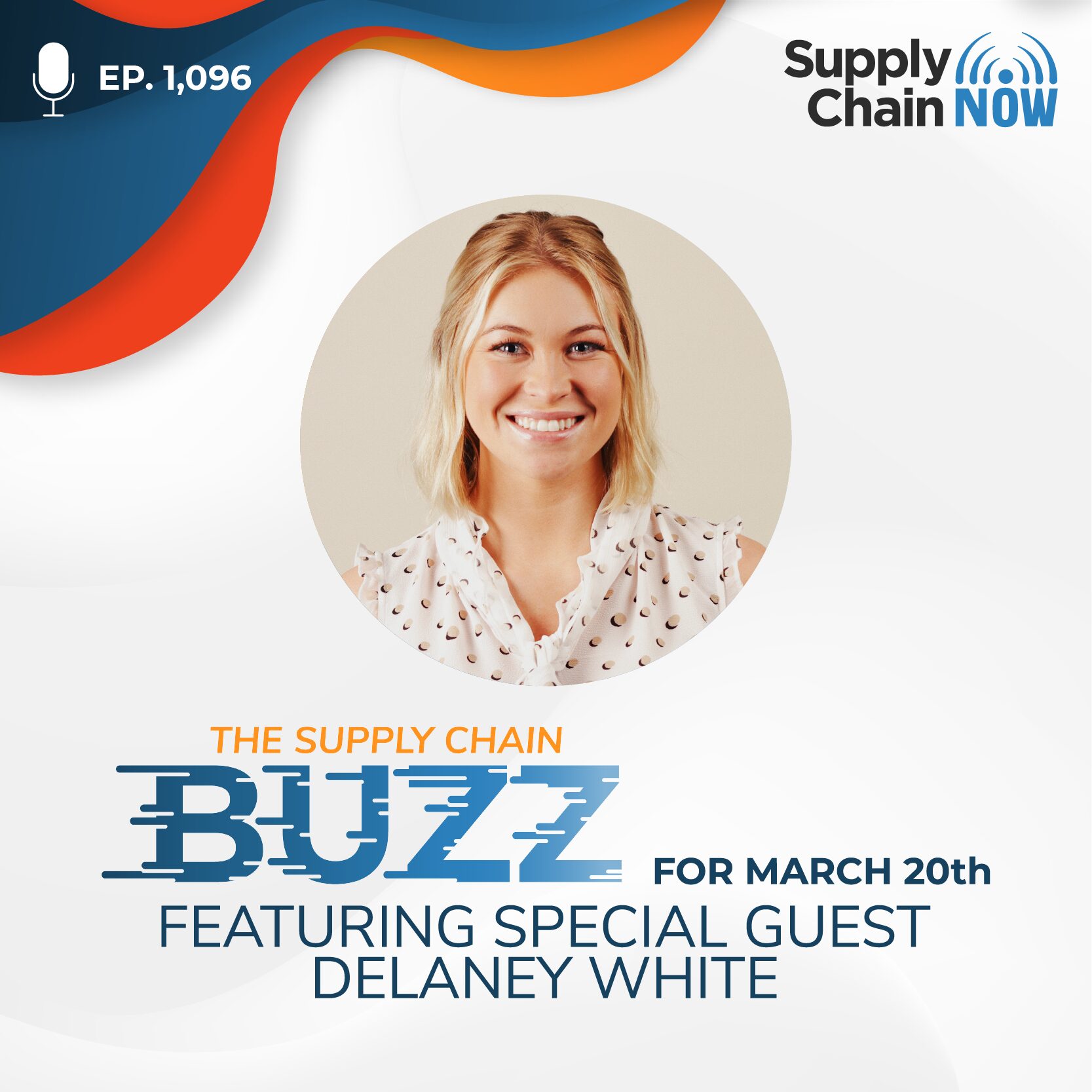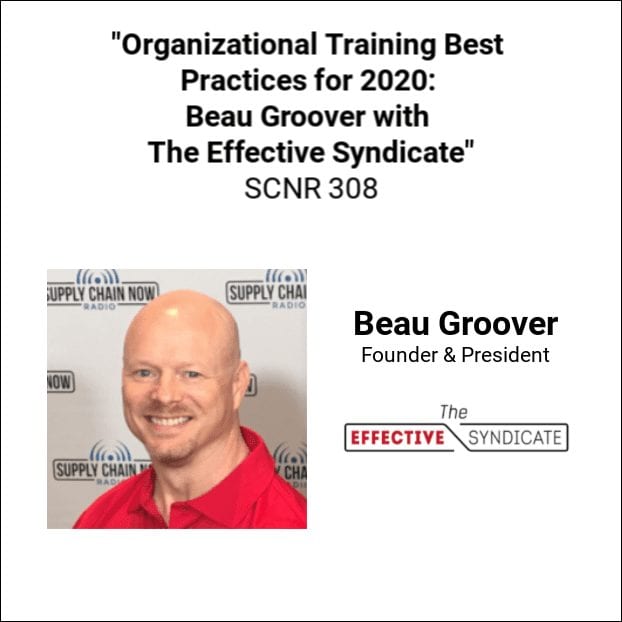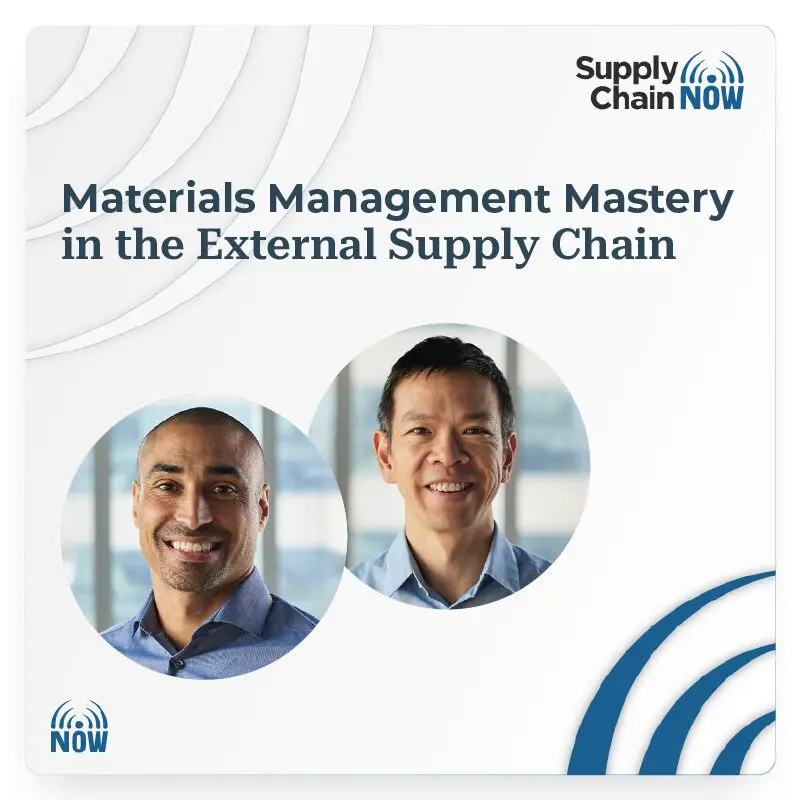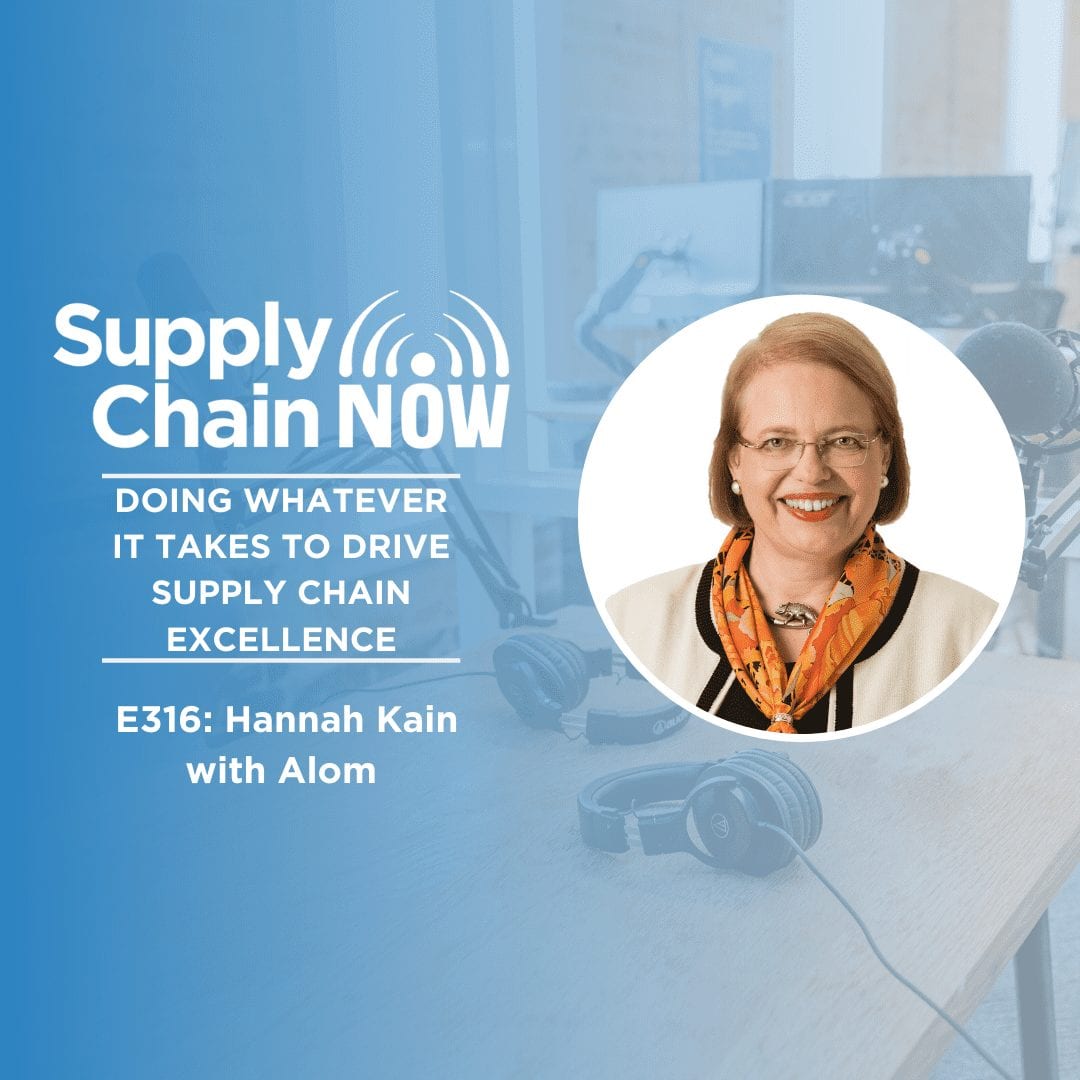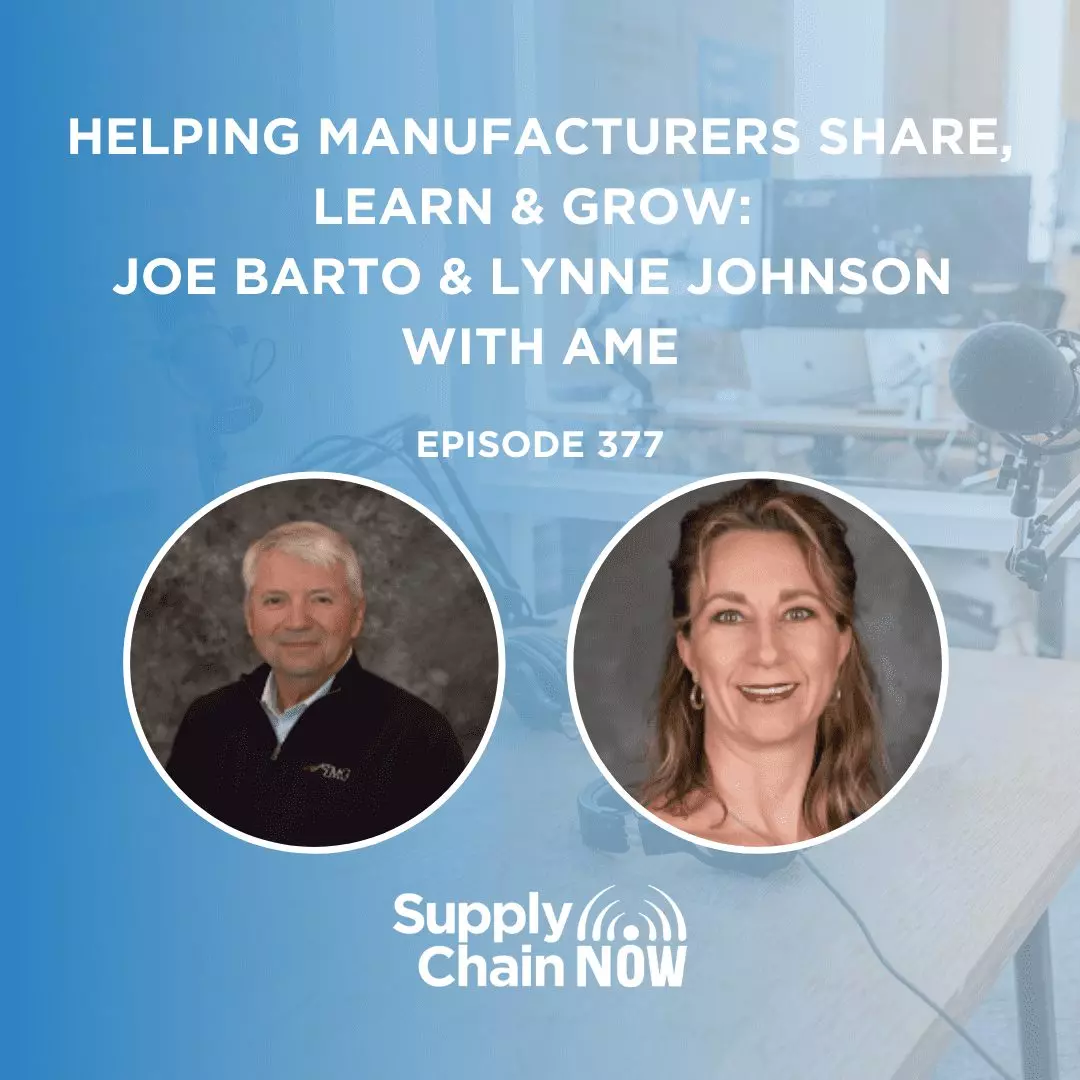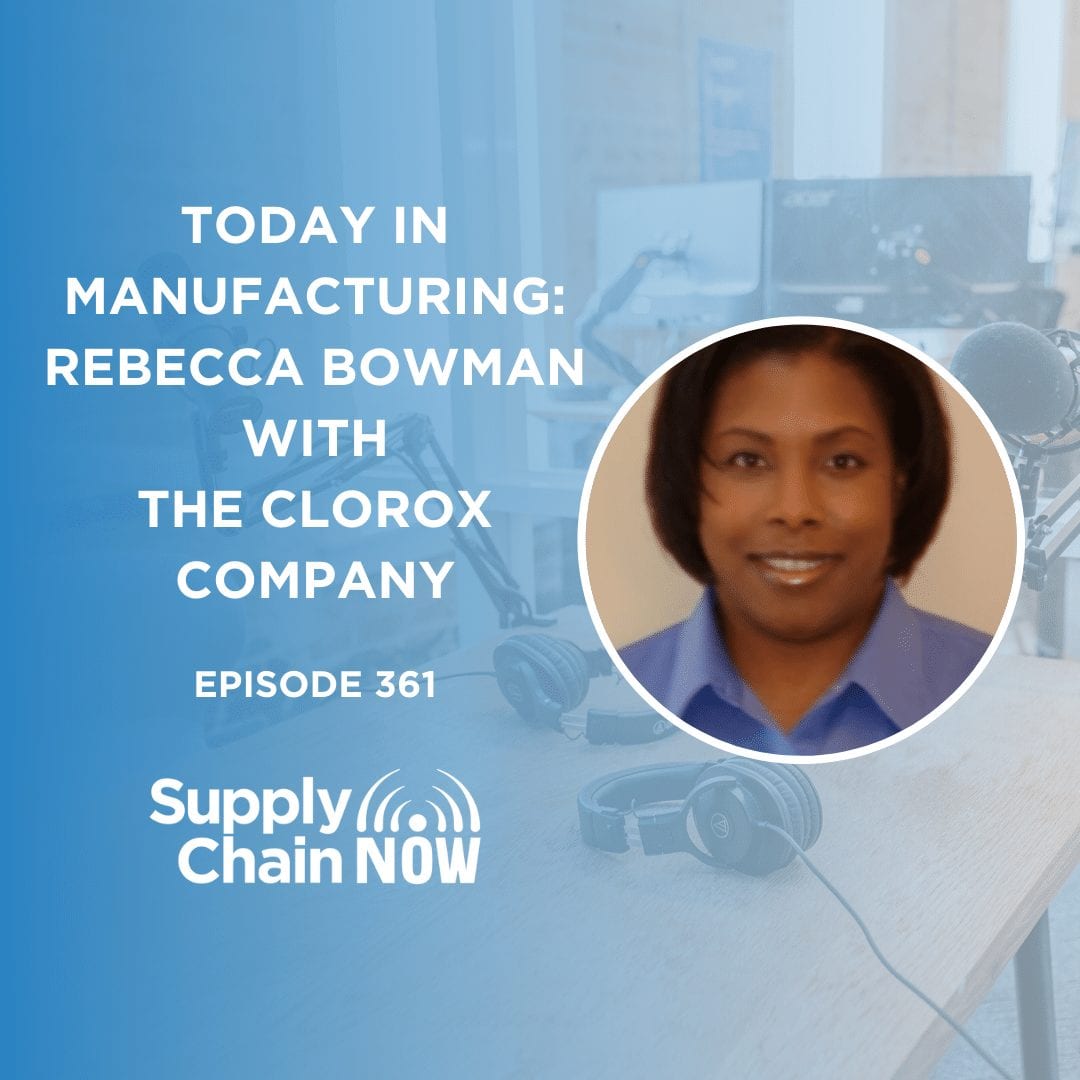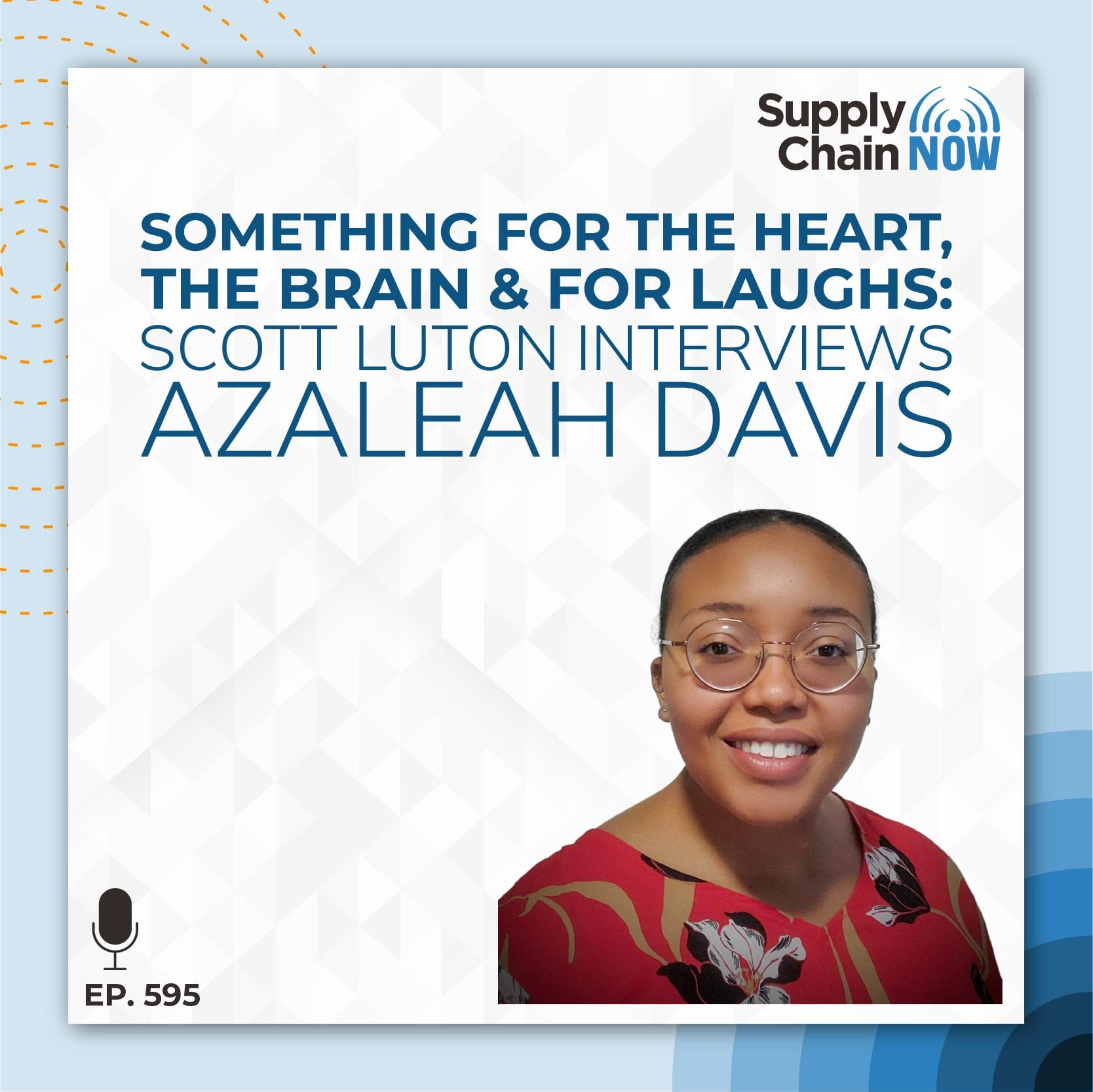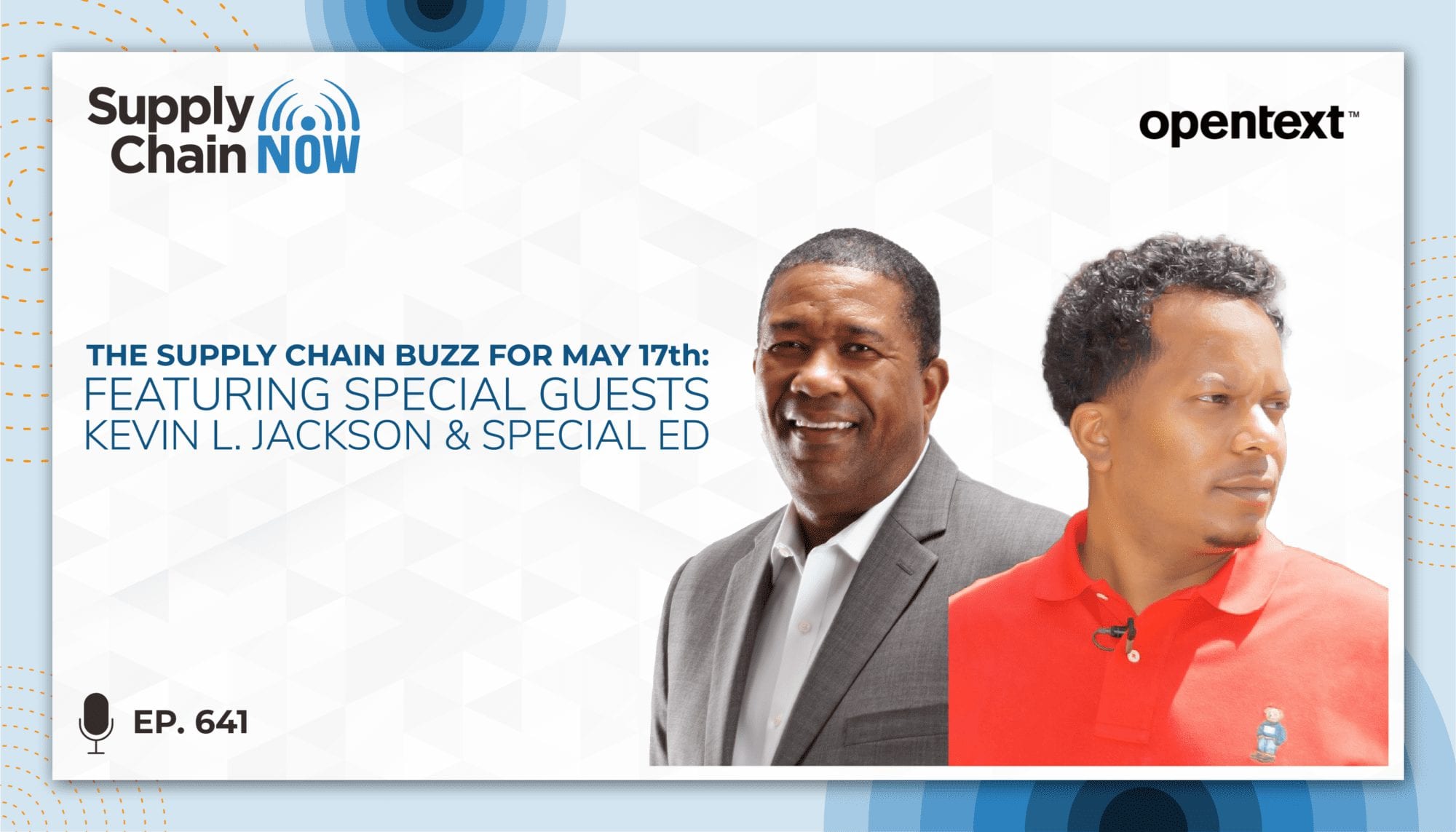
Episode Summary
“There’s a lot of people out here that are very successful. They’re making a lot of money in the music entertainment industry, but what are they doing for others? What are they doing to open the door to enable others? In my opinion, I would rather see a thousand millionaires than one billionaire.”
– Special Ed
The Supply Chain Buzz is Supply Chain Now’s regular Monday livestream, held at 12n ET each week. This show focuses on some of the leading stories from global supply chain and global business, always with special guests – the most important of which is the live audience!
In this episode of The Buzz, powered by OpenText, Supply Chain Now Co-hosts Greg White and Scott Luton are joined by Kevin L. Jackson (Digital Transformers), and special guest Ed Archer, better known “Special Ed.” He’s been a recording artist since the 1980’s, but now he is taking a tech leadership role as well, serving as a media consultant.
This week’s Buzz guests and hosts engage in real time with a live audience to talk about:
· The 75,000 new jobs – at good wages – that Amazon is creating, and whether or not those opportunities are enough to get people back to work
· The current state of international pirated and counterfeit products, valued at $509 Billion in 2020, which represents a $115 Billion increase since 2013 and 2.5% of the value of annual world trade
· Special Ed’s efforts to preserve the entrepreneurial spirit of the entertainment industry, in part by applying blockchain to the security and IP challenges being faced in the industry
Episode Transcript
Intro/Outro (00:03):
Welcome to supply chain. Now the voice of global supply chain supply chain now focuses on the best in the business for our worldwide audience, the people, the technologies, the best practices, and today’s critical issues. The challenges and opportunities stay tuned to hear from those making global business happen right here on supply chain now. Hey, Hey, good afternoon,
Scott Luton (00:31):
Scott Luton, Greg White, and Kevin L. Jackson with you here today. Hello. Good morning, Kevin. Good afternoon. How are you doing great. I’ve been looking forward to this the last couple of weeks. Awesome. Well, Hey, uh, we’ve got, uh, the supply chain buzz all teed up, like, like always every Monday, 12 noon Eastern time, Greg and I, and sometimes with, uh, outstanding guest. Co-hosts like Kevin, L Jackson and big guests. Like we have here today, all join us as we tackle some of the hottest topics across really global business, of course, huge big and supply chain and across school of business. Greg, how about you? How are you doing today? Uh, very good. It was a great weekend. I may or may not have got caught in a downpour, but it was not in the rain. Let’s just put it that way. We’re going to, uh, everybody’s going to get caught in a downpour of market Intel insights and POV here today. It’s going to be a very unique episode two. We’ve got, we’ve got a legend teed up to join us about 1220. We’ve got Mr. Ed Archer of some media, better known as special ed. And he has got quite a legacy that he’s been building for a couple of decades. So stay tuned. Hey Greg and Kevin, we should give a tip of the hat to our friends at OpenText, which is powering today’s supply chain buzz.
Scott Luton (01:59):
That’s right. Yes, that’s right. They make a lot of things possible, including the supply chain buzz, but Greg and Kevin, we’ve been touting an event that they’ve been, that they are going to gear up and host in June. That’s been moved to September and we’re, we’re locking in a date. It’s going to be, I think September 14th, but more to come stay tuned. And you can learn more about opentext@opentext.com. Okay. So let’s do this. Let’s say hello to a few folks, and then we’re going to hit a few programming notes and then we’re going to dive into the news of the day already. Let’s do it. All right. So, you know, Matthew Neely, he beat everybody to the punch. He shared this on YouTube, uh, about 1130. He is geared up ready to hear from special ed. We are to, uh, Peter Bowly all night and all day is with this.
Scott Luton (02:46):
Once again, he had a wonderful time with his, uh, grandkids over the weekend, or at least maybe remotely celebrating some birthdays. Peter hope this finds you well, Don the Pawnee. I think I’ve gotten that right. Very, yeah. Hey, we try. It’s important to get people’s names wrong, but if I got that wrong, please let me know. Thanks for tuning in via LinkedIn. Mervyn is with us once again from Dublin Mervin hope this finds you well, Rhonda has been dropping some great content, help them folks, especially from that work-life balance, mental mental standpoint, she has tackled the live, the live stream and done so with a plum. So, yes, I don’t mean a plum like the fruit. I mean, like she’s really good at it.
Greg White (03:33):
I did find a new word every week and use it repeatedly throughout the week. And hopefully eventually I learned what it actually means. We know it was provenance for about 18 months with word they’ll love that word. Hey, we’re going to talk about that. We’re going to talk about problems of, of media, um, with our guests. All right. Let’s see here. Uh, AA is with us from Wichita, Kansas. Mohib great to see you hope this finds you well, uh, via YouTube is with us. Great. Thanks for joining and stay tuned for our special guests here. About 1220 Bradford. Hey, breakfast, back with this, Kevin, we had a great interview.
Scott Luton (04:31):
Yeah. Sorry. I think there’s a little slight delay folks on trying to, uh, use pregnant. Pause is Greg and Kevin pregnant pauses. Um, allay is with us once again from Sudan. Hope this finds you well, LA, thanks so much for tuning in here today. And Thomas Carter is with us. Uh, I’ll tell you lots of movers and shakers here today. You guys need to play the special ed. Everything is digital video, Thomas you’re. You’re just taking a sneak peek. Don’t get ahead of us here, man, giving up all the secrets. That’s right in order to see here today via LinkedIn, this is back with us. Hello, everyone from India and hope this finds you, your family and really your, all your friends, um, successful in the fight against, um, the second wave of COVID there. All right. So there recently anyway, more recoveries than, than new infections each day and the mortality rate continues to decline every single day. So that’s great to hear that you given that, uh, good news. We all need good news. Go ahead. Still, still the issue is that the economy has been shrunk pretty substantially by this issue. And remember as with our, uh, our show with [inaudible], the issue is that some people literally earn their money today to buy their food tomorrow. So
Greg White (05:58):
Still there’s a lot of need there. I know we’ve got the, we’ve got the site. When we post the site, please go share your gifts with that organization.
Scott Luton (06:10):
So let’s do that. Let’s go ahead. And I’m going to share a couple of programming notes here, Greg, just let off of the first one. So we’re, we’re supporting a big effort to get a much needed supplies over to our friends in India. So y’all check out via pod.org, which is a non-profit every dollar goes to the fight. Good fight. Or you can send a note to our friends at vector global logistics who are helping marshal the resources over there. So india@vectorgl.com. All right. So moving right along. Let’s see here. What else? Uh, so today on the main channel, the supply chain real estate series is back. Greg, you remember at, uh, the series in our earliest days, right? In our first studio.
Greg White (06:50):
Yeah. Yeah. Gosh, it seemed like forever ago, but it was, well, it was wasn’t it.
Scott Luton (07:00):
All right, Kevin, check your beard, but Hey, check out the newly reinvigorated series, uh, PowerBar, forensic Prologis and ward and Melinda and Megan, we have a wonderful, uh, really finger on the pulse conversations. Y’all check that out on the main channel. The replay was dropped today. Lots of webinars coming up. Lots of great learning opportunities coming up, including this one that Kevin L. Jackson is going to be leading in July. We’re way ahead of man. We’re we’re planning like the Dickens around here, July 27th, 1:00 PM. It’s all about digital transformation. Imagine that, uh, and Kevin’s going to be, Kevin’s gonna be navigate and a great conversation with our friends from Esker as well as
Kevin L. Jackson (07:40):
They’re really a digital transformer. I mean, I’m looking forward to that.
Scott Luton (07:45):
I am too. And so we’ve got Kevin, we’ve got Esker and we’ve got Dr. Morgan Swink from Texas Christian university who has got his finger on the pulse of a lot of great things taking place across the digital transformation landscape. Hey, tomorrow, Peter bowler already mentioned it tomorrow. If Kevin’s on the buzz, that means Dow P is just around the corner. Kelly has got a wonderful show, teed up with some big names and Marcel and Jacobs y’all join us tomorrow, live at 12 noon Eastern time, and now you’re ready to get down to business. Hey, we can’t let the legend hangout in an individual green room too long. So let’s dive into three news stories and then we’ve got a special ed joining us here in just about 12, 13 minutes. So the first story here today, Greg Amazon, man, they’re adding to their army. Tell us all, tell us a lot more about this
Greg White (08:39):
75,000 new jobs. Wow. Um, and it at good pay rates, well above the, whatever we want to call it, the hope hopeful, $15 minimum, I think they’re starting at 17, 10 an hour. So all those folks whose unemployment pay has just recently been cut can earn almost as much as they’ve been earning from the government now. So, um, and more than they will be shortly as, as those benefits are reduced. So great opportunity for folks to get back into the war work force. When I posted about this article, the big question was interesting. Suniva from India had a lot to say about the opportunity that exists in front of us for people, if they will just get back to work. Right? The, um, the issue has been, and as I said, I may or may not have been caught in a downpour, uh, at a local, uh, constabulary this weekend somehow.
Greg White (09:40):
No kidding. Somehow, uh, in the midst of dueling pianos, we were talking about the labor shortage. So, um, regional vice-president from a major, a major trucking company, transformed 60 jobs, not a single application in three weeks. Um, uh, another young man who works for a cybersecurity firm, Kevin of all things, fresh, moved from Illinois, a fight in a line. I, he was talking about how they are giving sign and stay bonuses to new graduates, to get them to come to work rather than to go on unemployment or, or whatever. Um, and, uh, but a couple of really encouraging conversations. I had also, uh, my friend, Mike, who has his own trucking company, only just a small number of trucks lacks for neither drivers, because it sounds to me like it sounded to me like at the bar that he basically conscript his cousins into driving for him.
Greg White (10:35):
And they really have no choice if you’ve ever met Mike, he’s a big dude. You would not want to tell him no former former UGA player. Um, and then also talk to a company called happy gigs. So get this, believe it or not, not only are there people who actually are working and looking for work though, by the way, 16 million workers still remain on pandemic assistance, unemployment. Wow. So, um, you know, I think the government is finally acknowledged that that’s having a detrimental effect on, on pricing. Vis-a-vis labor on pricing. These are the, uh, inflated demand and they’re starting to take some of those ways. So we’ll start to see a bunch of those folks move back into the workforce. Uh, but anyway, the good news was this company called happy gig, a KPI gig. Um, and what they do is for people who are working, who have a full-time W2 job and want more work like to work, maybe a few extra hours in an Amazon warehouse, they can sign up.
Greg White (11:41):
They become a W2 worker for that company, which a lot of companies require now because touching, touching the goods and that sort of thing is a huge responsibility. So there are people for extra work and it is a real, I mean, you want to talk about encouraging. I mean, these people who are doing that, they may be the saviors of American society, frankly, that people really want to work, work hard and work more than one job to lift themselves up out of their economic situation, to build a better life for themselves and for their kids and to encourage a strong work ethic for their kids. I think that in and of itself is that is just so powerful and I’m glad that people are doing it. So, uh, one of the issues though is this patchwork of minimum wage that we have across the, across the country.
Kevin L. Jackson (12:35):
There, there are States and areas where the minimum wage, you just can’t live, uh, comfortably. Um, and I know maybe it’s political, but a national minimum wage that gives actual living wage to people is important. And I think that’s part of this issue is balanced between giving assistance to people that can’t get the work through no reason of their own, no cause of their own and the ability for people or companies to just pay minimum wage. Yeah. That’s a really good point. I think almost nobody pays minimum wage these days. Um, I mean, and they can’t thankfully, right. Kevin, because the demand outstrips the supply of workers. And I think hopefully we’ll see some, um, some real economic impact that, that forces work, uh, workplaces to pay a living wage to get people to work. So, yeah.
Scott Luton (13:36):
Well, uh, one last comment here and we’re gonna move to the next story is, you know, Amazon, it’s really interesting just last week, they opened up, uh, their latest, um, uh, daily cargo service to the international airport in Pittsburgh. And so they continue to bring on more and more of their own, uh, freight demand and cargo, you know, move and stuff. So it’s just, it’s it’s fast.
Greg White (13:58):
Um, well that’s not going backwards. That’s been the strategic plan since they were failed by the big parcel carriers in 2014. And they really accelerated in 2016 and 17 when they were failed yet again and continue to be failed. So they really have no choice because they produce so much parcel volume, right. They have to be in charge of their own destiny.
Scott Luton (14:22):
They’re bringing it into, uh, their own control, their own hands, so good stuff there. All right. So let’s keep driving. Let’s talk about Kevin talking about counterfeiting, counterfeiting and privacy, which has increased dramatically.
Kevin L. Jackson (14:37):
Yeah. You know, uh, there had been a study on international trade and counterfeit and pirated products in 2016. It was like a 509 billion. That’s what a B, and that’s it. And that’s an increase of 150 billion since 2013. And what’s in there more important. It represents two and a half percent of the value of world trade. Okay. And these, these poor quality counterfeit, electrical components, software metals really get into your cars, the plane you’re going to fly the appliances, your computers, and, and it, it really can contain, uh, toxic materials violations of logos, marketings. You know, if you’re off shoring your, if you’re off shoring, I mean, then this is not new, frankly, but if you’re offshoring your production to China, you can bet that your molds for whatever you’re building or your stamps for whatever you’re stamping or, or whatever your designs are being re are being used by someone in China to, to make something for someone else.
Greg White (16:08):
I know that it happens. We were inadvertently part of it back in the early nineties, when the same factory who made our tools also made craftsman tools. We found out they were actually making us craftsman’s tools and just simply stamping our name on the tool itself. It’s, it’s part of the culture of, of Chinese business. And it remains so, and it’s, I mean, it’s not just China, of course, Kevin, right. But that’s predominantly the where the issue lies is a huge economic power right now. Um, and it’s growing and, but the protection of intellectual capital is really not as strong in China, as we were hope. That’s very diplomatically put
Scott Luton (17:00):
This report that was put out from the international chamber of commerce via, we got it here via the world trademark review to Greg. And Kevin’s point, they point to China along with its global trading partner and transit point, Hong Kong is what the report says is the top producer industry butter of counterfeit goods, therefore providing a seamless environment for counterfeiters. So that’s right out of the report and the data. So huge problem. Huge problem. But Kevin, uh, any, any final thoughts here before we move to the third and final story,
Kevin L. Jackson (17:34):
Actually go do a third because I think this is a sort of an extension of the second. Yeah.
Scott Luton (17:41):
So when I glanced at this really quick, I thought that was Metallica. I thought it was a shot at the concert, but it’s not, but nevertheless, so let’s
Greg White (17:50):
Talk about streaming and, and artists are demanding a different way of doing business, right? Yeah, absolutely. I mean, everyone knows that the world of commerce is transitioning. That transition has already has transitioned from physical to virtual. And the value of virtual goods is even more important than the physical world. And one of the areas is entertainment. I mean, who doesn’t stream their music while they’re working out or walking and, and, uh, Netflix, I mean, bingeing on video strings is like what everyone has done for the last year, right up in their, in their homes. But, uh, the content creators are really getting shafted to be honest, okay, they’re not getting their due when it comes to payment for the, the, the, the value they deliver, the cultural value, the entertainment value, uh, and this week over 150 artists in the United Kingdom, including Paul McCartney, Kate Bush, Damon, all Chris Martin and Wolf, Alice signed an open letter to the prime minister of the United Kingdom, Boris Johnson to reform the streaming economy and to put the value of music back where it belongs into the hands of the music makers.
Kevin L. Jackson (19:25):
Um, and to actually talk to a lot of the politicals there, the United Kingdom, and told the ministers there that the low streaming payments were threatening the future of music and, uh, new acts, you know, people that are trying to break into the business, they are facing massive competition from classic artists due to the algorithms. Right. And they, and I counterfeit, I mean, people are, I mean, let’s, let’s face it. You, you, you get a, um, a streaming subscription and you’re enjoying it. And you know, your friend wants to listen to the music or you have a Netflix. I know no one here does it. Right. But you share your password through your family members to look at a video, but, uh, companies like Spotify warn that if you actually increase subscription prices, people could even do more power Resy on the music. So, um, you know, cloud provides a lot of value and a lot of ease of consumption when it comes to this. But I mean, we got w w we afford to get rid of the people that make our lives worthwhile.
Scott Luton (20:51):
Agreed. And, and, and Hey, look, we’ve got to protect our IP, right? Whether you’re in the music industry, whether you’re in, in other areas where you’re, you’re, you’re putting in your blood, sweat, and tears into creating content for, for consumption, you gotta protect that. Uh, it’s, it’s livelihoods. And it’s all the folks that, that make a living, you know, and not just artists themselves, but everyone else. So
Greg White (21:15):
Ahead, Greg. Well, I was just going to say, there’s a ton of this equity in this, because part of the reason the algorithms highlight established what they call legacy artists is because a lot of legacy artists have a 10% royalty rate in their contract. Whereas, um, artists who, who came up in the, in the streaming era have a different royalty rate for streaming than they do for reproduction 25%. So it motivates these streaming companies to put out old music rather than new music, but it also highlights this equity in another way, which is these older established artists, why are they not deserving of this 25% rate? And by the way, did anyone ever really think about the fact that Paul McCartney is getting 10% not now, but was getting 10% of what the Beatles brought in. And 90% of it was going to someone else, if that doesn’t identify well-established, this equity in the music industry, this is a great article to read. It will enlighten you to a lot of things that go on today and have always gone on in the, in the music industry. And this is really not just music. It is a digital supply chain. This is software and everything in today’s world it’s software.
Scott Luton (22:41):
Agreed. So folks y’all check that out. A great article by Adam Goldsmith over at an M E um, also I was going to say if Paul McCartney is getting 10 Ringo should get no more than five Greg. No more than five. Good. Hey, speaking of legends, let’s, let’s talk about our guests here. I want to introduce our guests, Kevin and Greg. Y’all ready.
Kevin L. Jackson (23:04):
Alrighty.
Scott Luton (23:04):
So let’s, let’s let’s I want to show, uh, kind of set the table just a bit. So our featured guests here today grew up in the flat Bush neighborhood in Brooklyn. He’s a slave. Yes. Uh, uh, Crooklyn his finest. I believe I heard in some of the, uh, the prep stuff. I reviewed the son of Jamaican immigrants. He’s the youngest of five boys. Uh, our guest exploded onto the music scene in the eighties. In fact, he signed his first recording contract when he was still a teenager. Uh, his hit, I got it made, was legendary dominated. The charts, turned him into a young star, his 1989 debut album youngest in charge, true to its word. It dropped when he was only 17 years old and they hit the top 10 in the U S and charts. And that was just the beginning more hit albums, singles, TV, movie appearances, all would follow, including an appearance. Greg and Kevin are one of our favorite movies, the 1992 film juice that we still referenced the kind of conversations. Uh, so we’re welcoming a true legend here to the supply chain buzz today. Let’s welcome in Mr. Ed Archer with some media better known as Special Ed. Good morning, or good afternoon. How are you doing
Special Ed (24:17):
Good afternoon, gentlemen. I want to, first of all, thank you guys for having me on this Island, a privilege to be here amongst such. Wonderful. Uh, let me tell you, what’s going on. These worlds are now emerging, so now isn’t that crazy. So now where we didn’t have much conversation or interests, we share the same interests now, and the dialogue is opening up and that’s beautiful and we need to have a lot more of it.
Scott Luton (24:48):
That’s such a great point, open up on dialogue or garlic, whatever issue we’re having in business or otherwise got to have that dialogue. So, you know, our audience I’m sure knows you well. Uh, but for, as Kevin mentioned, pre-show for the 5% that always hanging around and might have their head in a hole somewhere. Tell us a little bit about your, your musical journey, uh, special ed.
Special Ed (25:09):
Well, I started off, uh, I recorded my first album at the age of 15 when I was still in high school and this was in the eighties. And, um, my first single came out when I turned 16 years old, I was in, I was in school. Yeah. High school and it got enormous success, international success. And, um, I was doing great apparently, you know, in, in the eyes of the press, in the world, I was on top of the world. So when we look at the actual infrastructure of the business of music, that’s where we kind of got a deeper look and an understanding of what was really going on, but I’ve had the great, I had the great fortune of working with all kinds of celebrities and, um, luminaries. I’ve done work with the likes of Tupac, biggie smalls, and many others that have led the way I’ve personally, you know, been sampled and, and duplicated and replicated and honored pretty much by a lot of the, your favorite artists. So, you know, it’s just, uh, it’s just good to be back in this, in this area to be able to introduce some things to the people.
Scott Luton (26:25):
Well, you know, I love, I love how you’re using all of that experience and success and applying that to some of the biggest challenges we have across the digital landscape here today. But Kevin, where are we going next year?
Kevin L. Jackson (26:38):
Well, I mean, uh, first of all, thank you very much for joining us mean you are a legend and, uh, uh, everything that you’ve done and, uh, the music industry. And, but now you seem to be following that up in the business world. So what’s really on your agenda right now. Well, basically I’ve decided I’ve took the concept of the record business and the understanding is there’s no more records. We don’t really print vitals. So it’s, everything is digital. So we [inaudible], and now that we’re in the digital age, how do we monetize that? How do we control that? And how do we grow a flourish as artists, as entrepreneurs, because there’s various industries that have digital assets and they all need, you know, the blockchain, they need security. So here I am, I have a media company send media and not only do I do entertainment and music side of things, but I’m into the tech space as well. I do media and tech consulting. Um, I have a website, it’s a media dot I O and it will clearly kind of show you where I’m at in the space. And, um, this is what I do now. You know, music is fun and I still do that. I have artists, and this is all a part of incorporating the music industry into the blockchain.
Greg White (28:08):
Oh, wow. Yeah. I think it’s a fascinating kind of confluence of, of music and technology and supply chain. I mean, really right.
Kevin L. Jackson (28:22):
I thought you’d be talking rap music, Greg, on a supply chain show, right?
Greg White (28:27):
Yeah. Well, yeah, but I’m glad, I’m glad, but I got to tell you, I got to ask this question before we move on. So Tupac and biggie, obviously not big friends. Are, would you consider yourself a classic East coast rapper?
Special Ed (28:47):
Yeah, I actually am, but I’m more of an international at the time when I came out, hip hop was more global and not divided into sectors and neighborhoods. It wasn’t more so like we ought to hip hop community. So what happened was it started breaking down and, you know, media started breaking it down to East coast, West coast, and then they started getting into the great divides. And when that starts to happen, that’s when you have confusion, no leadership, no direction. And that’s what, that’s what we faced with now.
Greg White (29:17):
Yeah. Well, and I, and I think likewise with the technology, right, what we were just talking about it is, is, you know, how we’ve got this sort of divide between between the musicians and the music industry and kind of not created, but, um, exacerbated by technology, right? Nobody saw streaming coming and, and they didn’t
Greg White (29:42):
Really, um, provision for it in the agreements that alive you and your fellow artists have. So, so you recently created, um, a video. We’re going to share a little bit of that, but for the four deg, the D digital entertainment group for their tech tech ops award, is that correct? They had their inaugural first ever tech ops awards and basically the digital, uh, media environment from the content creators to content delivery, to everything. They, they are honoring each other now and that given accolades and just showing because they, they generate the billions, they actually generate most of the income from all contents. So even movies, movies probably make 80% more when it goes digital, especially now because of this whole COVID. Uh, so, you know, it’s, that’s where everything is, is existing right now. It’s all digital and see in my day, how this relates is in my day, we had, uh, I had a record label called profile records that I assigned to, they were the record label. They were the manufacturer and they were the distributor at the same time. Now, who were they accountable to?
Kevin L. Jackson (31:03):
Yeah, not you.
Special Ed (31:05):
And they had platinum artists. They had run DMC, Rob bass. I mean, you name it. They had these mega hit songs. You get the artists still remain in, you know, man. So now what this does is it has accountability. This is all accountability. We have, you know, smart contracts, we have everything blockchain. Then we have an opportunity for entrepreneurs to go in and actually deal directly with their market, get paid, directly deal with the bureaucracy and you know, the red tape and, you know, the triple books, you know what I mean? Like, and verify when your, when your art is being used to, I mean, Kevin and I were talking about that by the way. Uh, and we’re, I think we’re going to rename Kevin’s special case.
Kevin L. Jackson (32:07):
[inaudible]
Kevin L. Jackson (32:08):
Already got a blockchain problem. So to support the intellectual capital, a
Kevin L. Jackson (32:14):
Special K tell me
Greg White (32:17):
Right now, the verifiability, I think is critical too, because one of the things that’s difficult in the streaming age with YouTube and people sampling and people claiming fair use of music, meaning they use a small enough segment of this song that they feel they shouldn’t have to pay for. It is with blockchain. We can verify whether that’s true every single time it happens. And it could just, I could see it becoming automated, somebody samples, I got it made, it gets paid. And I think that is, that is a fantastic use of things. It ties very much into, I’m gonna use the P word Scott provenance, like, like we were talking about with counterfeit products and like we were talking about with, with piracy of, of products as well. So I think it’s a fantastic vehicle. All right. Is it okay if we share a little bit of your video?
Special Ed (33:13):
Oh, absolutely. This is a video I did strictly for the sole purpose of the DG tech ops awards. And it was really a Testament. It was like a commercial, almost a demonstration of what we at send media do. So what I’ve done is, uh, you know, written recorded, and also did a video for them just specifically for them with a message and the message in it is exactly what we’re bringing to the table and what we, as the media and vision. And I want to thank Thomas Carter. And I want to thank Kevin Jackson for just being visionaries and not just having that corporate mindset, but being able to relate it to everyday life and people. We talking about, you know, family, men, people with belief and spirituality. And, and it’s not just about his morality going on here and you can reach these pinnacles and these Heights of your career and keep moving. There’s a lot of people out here that are very successful. They’re making a lot of money in the music entertainment industry, but what are they doing for others? What are they doing to open the door to enable others? In my opinion, I would rather see a thousand millionaires than one billionaire.
Scott Luton (34:31):
I kind of echo what you said there, special ed, Kevin, uh, you know, having collaborative Kevin for quite some time, bringing on the whole team. He does it the right way and he’s and he’s, and he is brilliant. And he is visionary. The builder rub elbows with Kevin and Greg and the gang here is just incredible. And having you here, and there’s a thousand questions, Greg and Kevin, that we’d love to get the next 10 hours from, from special ed. Uh, and, and, and really hear his stories. Cause he’s got so many of them, but let’s give them a little sample.
Kevin L. Jackson (35:00):
That’s what people want. They want the best education that most people have gotten on the blockchain. Well, part of that is, is not just opening the space to the masses, but being able to educate them at the same time so that they understand why it’s important so that they understand, you know, tokenization and what this new market means in terms of economics and the shift in economics. Um, w how, how does the blockchain helped me? You know, how, how does tokenization, how, how does crypto currency helped me? I mean, you have to know what’s going on and, uh, to participate or even the one to pay attention. So you’re, I mean, you are making a real statement here and, uh, your relationship with the deg, uh, obviously is a big, important part, but as a independent artists, can you maybe tell us more about, you know, why this is such an important mission to you?
Special Ed (36:20):
Well, this is an important mission because I need to even the playing field, because we have a whole culture of artists and participants that are suffering, they’re suffering because their incomes and their monetization have been minimized due to, uh, some technologies that are not available, you know, some ways of tracking and, um, this kind of changes and levels the playing field. So it’s not just in the hands of corporate alone, but the end-user and artists and entrepreneurs that want to participate can participate, actively reach their markets directly, you know, uh, avoid piracy and get what they deserve from their business. A lot of these people are small businesses. We’re talking about Amazon, who’s grown exponentially because of this pandemic. And because of the way they’ve been positioned to make money while other mom and pop is small businesses have to close down and shut down. So that’ll really assuming that portion of the enemy from the small, and this is, this is a way where we have to get more direct and, and reach out. And it’s, it goes to entertainment, but it goes to entrepreneurship in general.
Scott Luton (37:40):
So I want to circle back on some of the pain points. You mentioned a second ago, but I want to share a couple of comments here. Bradford likes what was said earlier. I get paid when my record is played to put it short. I got it made. I think that’s [inaudible]
Special Ed (37:54):
And not like what you were saying about the tracking in, in the blockchain where they can identify the music and the sampling, and then automatically, you know, you’re, you’re built in, you’re locked into that contract and getting paid. So it’s almost like I don’t have to worry about the process of the licensing to every artist that wants a sample of someone wants to sample without asking then it’s, it doesn’t matter because I’ll be getting paid directly. It’s a democratization tool, right? I mean, it, it, I don’t know too much about all those layers you talked about in the music industry, but do you think that this minimize the impact of some of those layers, or even allow artists to produce and distribute for themselves without, or with less impact from record companies? Can we still call them records? Well, that’s what I’m saying. It’s really just a media company at that point.
Special Ed (38:54):
And, um, they have history. They may have some, you know, tenure in doing business on a broader scale, but these artists will now have the ability to come out here independently without the use of a label. Now they can decide whether or not they want to include a label. Now, I will say that a label can provide you a bigger machine to operate in, but as an independent artist, you have an opportunity to grow your own machine and make your dollar from, you know, dollar one, instead of waiting for the regulator, look, to find what your, what your net worth is or what your net pay is. You know what I mean?
Scott Luton (39:33):
So I want to circle back here first. I want to say big show, Bob above is with us. He’s asking that that’s the new theme song. We cannot afford that we’d love to make it a big enough check, but I want to go back to the, these pain points that special ed is talking about related to the music industry. Do you think that the public than your average music consumer is really aware of, of these, these challenges on the business side of music here in 2020?
Special Ed (40:00):
Well, no, but the artists talking up enough and there’s enough, uh, there’s enough suffering going on in the community that we’re speaking out about what is going on, because the residuals they’re getting for these for streaming on these platforms is less than it was for radio, you know, which was the minimum as it was in any way. So it’s like bringing it down, down to where it’s like scraps. So now we have to find a new ecosystem that we can exist in that we can deal with direct in. And it’s not just about the music. We also have brands, we have merge, we have lines. Some people have colognes, uh, alcoholic, beverages, energy, whatever it may be as an entrepreneur, you have to exist in this ecosystem and be able to flourish. I mean, I see a lot of people out here announcing their large achievements and we’re doing this and we’re doing this in this space and that space, but congratulations on your success. How about everyone else? What are we going to do? And that’s what I’m trying to deal with. I’m trying to deal with how to open this market up. So everyone for one understands it. So there’s also an educational element where we have to educate the people now, in order for them to know once again, why this is important and why, what is happening in the very world that you exist in right in front of you. So, Greg, a lot of people are totally oblivious, right?
Scott Luton (41:31):
I’m with you, uh, Greg he’s on quite a mission
Greg White (41:34):
Is what, what I’m picking up on. Yeah. I mean, well, I think it’s, I think a noble mission too, because it, look, he’s looking out for the little guy and I mean, let’s face it. The big guys get ripped off too. I mean, I think the record companies in the past, they needed to make a lot of money because you had to ply DJs and radio operators with gifts sometimes. Um, yeah, let’s just call them gifts. Now, all you gotta do is put it out there on Spotify or SoundCloud or your another streaming channel and it’s organic. It can be organic, right? You don’t necessarily need the marketing or the influence that a lot of these record companies have. So, um, the internet has made the cost of distribution so low, but that, that difference in costs is not shared to all of the auditors. Also, also the actual market. I mean, it used to be a regional market for music, you know, regional artists, but there is no such thing as a regional, anything. Everything is a global marketplace. Yeah. There’s no boundaries anymore. Right. So, so, you know, I’m curious, ever since they opened the worldwide, right, there are no boundaries except for those countries that block the world,
Kevin L. Jackson (43:10):
Ready to go and shot right here in China.
Greg White (43:16):
You knew I was going there, but look, I mean, in the past, no, go ahead. Sorry. I mean, they have technological countries, but yet they want to block technology and right. They’re trying to determine what their people here. So wherever it is, wherever there are no boundaries, you should have the reach. And I think as Kevin said, you do and can have the reach and the cost of production. As, as you’ve said, the cost of publishing the cost of promoting the cost of distribution. Even the cost of printing it’s are, are dramatically lower than they used to be. And I think all of that incremental margin is being absorbed by the media media slash record companies rather than being shared is what you’re talking about. Right. I think there’s more to share, but it’s not being shared because the contract doesn’t obligate them to do so. Absolutely. Absolutely. So it seems like you’re trying to leave more of a legacy behind than just money or wealth or fame or whatever. I mean, this feels like it’s about education.
Special Ed (44:32):
It’s about fair play. It’s about, I mean, it really is about helping your community. So can you tell us a little bit about kind of your thought what’s driving you to do this? Well, basically my, my personal life’s experiences, what, and I can imagine what all these artists have been going through are going through. I’ve seen a lot of my friends, my loved ones lose their lives, lose their careers, you know, turn to drugs and just the streets and, and, and, and they, they have gifts. So when you have people like this and you see this type of thing happen over and over, I’ve been seeing this happen for decades. So to me, the problem is that they’re not able to apply their gifts in a way that it can help their lives. And, and when you can change that, then you can help more lives.
Special Ed (45:26):
And then you’ll have less people turning to all the negative energy that is happening today. I mean, there’s a lot of young artists out right now that seemingly are doing so well yet they are killing each other, you know, and it’s online and it’s like, they’re filming this stuff. It’s like this things are going haphazard really fast and we need to get a handle on it. We need to get some education on it, and we need to change the direction and mindset of the youth moving forward so that they can be more prosperous and be thinkers and not run around out here, like Doug’s in the streets because really that’s not what they are and they’re not born that way. They’re just influenced by the media and by what they’re shown and what they think hip hop is because that’s what the media shows them. That hip hop is. She said that earlier, I think that’s a good point.
Scott Luton (46:22):
But beyond being thinkers, you gotta be doers like special ed is, has taken action to help, to make for a better industry. And to truly, um, uh, resolve some of the, the pain as an industry in the, in the loss and making things for the better. So I, we really admire what you’re doing and to have a legend with the voice, you have, the reach you have the following, you have, you know, apply all of that and, and your, um, expertise and experiences to making things better, uh, which will only benefit. You know, your efforts clearly are focused on music industry, but it’s going to benefit all industry with, with movements like this. So I want to share a couple of comments and then Kevin, if you, if you, uh, bring us home with this interview, I know we want to protect special. Ed’s time, really quick.
Scott Luton (47:08):
Uh, clay shares a touring with some was how some of these guys made all their money. Even though their songs have millions of streams, when COVID hit, they made nothing big problem in the infrastructure and exposes the artists, which are often just kids. Bob Bova says protecting IP when delivering products, music to end users is the challenge for us, all cloud makes effective, but locking down any ownership, compensation, and an illegal copies became the challenge of the decade. Excellent point there. And I, I would just add, you know, Greg, we’ve seen it firsthand. Some of the content we’ve made over 600 plus podcasts and a couple of hundred, uh, live streams. That content is being used in ways that we had never planned for. Right. And then Mohit, which I would echo, I applaud, I appreciate your sharing. This special ed does have a vision that the world still has a lot to transform to the level, to level the playing field for all musicians. Yeah. I’m hearing a lot of vision and passion and been there, done that. And we’ve got to do better in what I’m hearing from special ed Kevin.
Kevin L. Jackson (48:12):
Yeah, absolutely. And one of the things I, I would love in closing out, like to really bring up the fact that there is no room in the world for culture Wars. Right. Okay. People may have seen like a lead is going to be on what supply chain buzz, why are these cultures, what does hip hop have to do with supply chain? And it’s, it’s, it’s the implematic of how everyone is connected, right? You can’t give pain to one culture without feeling that pain in your own culture. We are all connected in a, in a global environment, in a global world. And we have to recognize that and support each other in whatever we do. So there are multiple cultures. Yes. But let’s celebrate the differences because the differences that we support and celebrate really enhance our own culture, enhance our own life. So don’t be turned off by hip-hop. All right. You can learn so much, don’t be turned off against one culture versus another culture. And I want to thank special ed for being on this mission and joining us here on a supply chain. Yeah. Thanks, pleasure. Truly. And, um, you know, definitely that’s send media that’s. My goal is just to open the dialogue, open the doors and just kind of let everybody share. Do you know what I mean, share ideas solutions and be able to help each other, move it forward in this global economy.
Scott Luton (50:16):
Well said, thank you so much special ed y’all check out [inaudible] dot IO and you can learn a lot more about what he’s up to and this incredible mission that he’s on behalf of our entire team. Thanks so much for carving time out here today on your busy week. Happy birthday, by the way, happy to,
Greg White (50:33):
We should
Scott Luton (50:33):
Have led off with that, but to just spend some of your time here. Thank you very much.
Special Ed (50:39):
All right. This is the gift. I appreciate it.
Scott Luton (50:43):
Awesome. Well, we’ve been talking with the legend, Mr. Ed Archer, uh, better known as special ed with some media. Thanks so much yet.
Special Ed (50:51):
Thank you. You guys have a great day. Wow.
Scott Luton (50:57):
That is, uh, what, uh, you know, uh, Kevin, back when we were talking about, uh, special ed making his appearance, you know, I’m slower than both of y’all Greg, Greg, and Kevin is light years. Both of them are light years ahead of me, but man, to echo your final point, everything is connected. And what excites me about this is it can potentially be a transformational use case for blockchain. And we’re looking for more and more of that, right? Because it has all the potential to truly transform industry and, and, you know, rising tide lifts, all ships, um, Kevin.
Kevin L. Jackson (51:30):
So, uh, special ed as the epitome of a digital transformer, going back to, uh, my shell. And that’s why I am. So I’m thrilled to be working with supply chain now. Thank you. Both Scott and Greg for Devin, maybe latitude to explore these edges of the business world.
Scott Luton (51:55):
Well, Hey, this is, this is some of the best parts of the journey, right? When we, when really, you know, so many folks I think, and I’ve made the mistake, Greg, I’d love to get your take here. We’ve all made plenty of mistakes. You, you start making content and you can put blinders on, and then you can eliminate some of the great conversations that you should be having, because everything is so interconnected, but what’s some of your key takeaways.
Greg White (52:18):
Yeah. Um, well, one, uh, I’m sure I’ve made far more mistakes than you have and probably more catastrophic as well. So fear, not people you can survive anything. Um, I think the other is I love this as an education point, first of all, who doesn’t love music and to, and to Ed’s point who does have a problem with rap music, if you do listen up. Um, but I think that important, there’s an important thing to identify here and that is, I’m going to say it cause I got nothing to lose by anybody in the music industry. Blackballing me music is a predatory industry. They take advantage of disadvantage, people who are more art artists than business people. And they take their, a big portion of their dreams from them and hold them beholden to a contract. I’ve seen it happen. Um, not personally non-musician, um, but I mean, I’ve literally had known people who’ve had that happen. And this is the great democratization of one of the most disruptable industries that needs disruption to give back the dreams, the, the ownership, the copyright, the rights frankly, or the creators. Right. I love it. Yeah. It, it, yeah, that’s right. Um, so I think it’s a fantastic initiative. I think it’s great that that ed is he’s taking control of his, his and other people’s destiny and aligning it with the needs and desires and the opportunities of the artists of today. And I love that he is trying to change the lives of others with it. So
Scott Luton (54:04):
I love that too. We always knew that music would truly save the world. This, this perhaps was one of the newest opportunities for that to happen. Um, all right. So before we close, I know we’ve got a tight window to close here. I got to share this from Peter, Kevin and Greg Peter has calculated the value of Greg’s pallet back behind him as a $75. That’s a $75 a pallet. And then Mervin says, Peter, that’s why he treasures.
Greg White (54:33):
That’s right. Mervin. Thank you. When I come there, Mervyn
Scott Luton (54:40):
Order leads a chaos, chaos leads to a new order.
Greg White (54:44):
Yeah, man. Seriously, what you guys were all saying, made me think of a Maya Angelou quote. No one of us is free until all of us. Right. And that’s what this initiative is all about. No one of us, no one of us is free or no one of us has opportunity until all of us has opportunity. You don’t paraphrase it. However you will. It just struck me when you guys were talking about that. So
Scott Luton (55:11):
Excellent point. Okay. So, uh, as we wrap here, uh, Kevin, uh, I love how you challenge your body to have a, um, a brighter digital future in your digital transformer episodes. So, uh, give you the last thought here before we all sign off, what, what, what do folks need to, they got to take away from this conversation with specialty.
Kevin L. Jackson (55:33):
Number one, everyone is connected. Okay. We all have our own cultures. We all have our own values, but they all support each other. Let’s, let’s focus on that. If we haven’t learned anything from the past year, we’re all connected. So let’s strengthen that connection. Let’s not tear it down.
Scott Luton (55:57):
Amen. Absolutely. Amen. And, and celebrating the differences, you know, that’s, uh, that’s part of the, the beauty in life. And sometimes that creates, it can create some tough conversations and some conflict, but if we truly celebrate it and have that dialogue that that ed was talking about in the front end of this conversation interview, that is so really important. So with all that said, folks, I hate to close this down. Matthew Neely asked if we could close that with the entire song we can’t, but we can, I think we can drop link in to the entire song, uh, into the comments. Y’all check that out. You got to, if you have it, if you’re part of the 5% Peter bow Lake, not calling anybody out, but since you self-identified, uh, y’all gotta check out he’s self-identified but y’all got to check out. I got it, made it. There’s a huge reason why that was such a big hit. The riff on it is just, it is a very, it’s just really cool. So y’all check that out. Check out that you were going to do some wrapping here.
Scott Luton (56:56):
You’ll have to tune into Dow tomorrow at 12 noon to hear, hear me. Rap is a, he’s a big rap fan. You can identify that song in like half a note. Uh, that’s a tough challenge, but a tribe called quest was, was, uh, one of my, um, uh, groups I love growing up, but we’ll, we’ll save that for another time. Huge, thanks to the whole team. Of course, clay and Natalie and Amanda behind the scenes making it happen. Big, thanks to my incredible co Sera, Greg white and Kevin L. Jackson, of course, huge. Thanks to the folks in the cheap seats. All the great comments really appreciate that. A lot of poetry in the comments here today. And of course the one and only a legend special ed dropping in sharing clearly deeds, not words and the special noble mission that he is on. What a great episode, the buzz, Hey, what a great way to start the week. Most importantly, if you do anything at all, do good. Give forward. Be the change that’s needed. Be just like an Archer. And on that note, we’ll see you next time right here on supply chain now. Thanks.
Intro/Outro (57:58):
Thanks for being a part of our supply chain. Now, community check out all of our programming@supplychainnow.com and make sure you subscribe to supply chain. Now anywhere you listen to podcasts and follow us on Facebook, LinkedIn, Twitter, and Instagram. See you next time on supply chain. Now.
Featured Guests

Special Ed (Ed Archer) began career as the youngest in charge in 1988 as a hip-hop recording artist. Went on to production, label, distribution, TV, media, tech and various areas of entertainment and content. Newly formed SEMEDIA is a culmination of the past 3 decades of an ever-evolving landscape. Connect with Ed on LinkedIn.
